In the vast world of cinema, where words, music, and performances play their roles, it’s the visual allure that often first ensnares our senses.
The Academy Award for Best Cinematography stands as an ode to those visual poets whose camera work transcends the ordinary, turning reels into masterpieces.
From the ethereal glow of a romance to the stark contrasts of noir, these winners have showcased the epitome of cinematic brilliance.
Journey with us as we spotlight the luminaries who have redefined the art of visual storytelling, one frame at a time.
academy award for best cinematography
What Is The academy award for best cinematography?
The Academy Award for Best Cinematography is an honor presented annually by the Academy of Motion Picture Arts and Sciences (AMPAS).
It recognizes a cinematographer for exceptional work in capturing the visual elements of a film.
Essentially, cinematographers, often referred to as directors of photography (DOP), are responsible for choosing the camera, lens, lighting, and composition of each shot. Their expertise determines how scenes are lit, how shots are composed, and how the camera moves.
The Best Cinematography Oscar acknowledges the pivotal role these professionals play in visually translating a director’s vision onto the screen, ensuring that the narrative is not just told, but is also felt through its visual artistry.
History Of Cinematography At The Oscars
The history of cinematography at the Oscars is both rich and pivotal, reflecting the evolution of filmmaking and the importance of visual storytelling.
Early Days
The first Academy Awards, held in 1929, recognized the invaluable contributions of cinematographers with the category “Best Cinematography.”
In the initial years, this category was split between films shot in color and those shot in black and white, underscoring the distinct challenges and artistry of each format.
Golden Era and Technological Advancements
As the film industry transitioned from silent films to talkies and from black & white to color, cinematographers played an essential role in pioneering new techniques.
The Oscars of this era lauded those who were pushing the boundaries, with awards going to films that showcased innovative lighting, camera movement, and more.
The Advent of Widescreen and Color
The 1950s and 1960s saw the Oscars recognize films shot in newer widescreen formats, as cinemas sought to differentiate themselves from television.
As color films became the norm, the Oscars phased out the separate categories for color and black & white cinematography.
Modern Era
The latter half of the 20th century into the 21st century has seen a significant shift with the advent of digital cinematography.
The Oscars have evolved to recognize both the artistry of traditional film cinematography and the innovations brought about by digital technologies.
Notable Moments
– Roger Deakins, one of the most celebrated cinematographers in history, received numerous nominations before finally winning for “Blade Runner 2049” in 2018.
If you want to explore more about prestigious film awards, we have an extensive guide on awards and film festivals that have shaped cinema worldwide.
– “Avatar” in 2010 showcased how advanced digital cinematography could create an entirely immersive world, pushing the boundaries of what was visually possible in film.
From its inception, the Oscar for Best Cinematography has honored the individuals who capture a film’s vision, mood, and story through the lens.
As technology and filmmaking techniques have evolved, so too has the Academy’s recognition of those at the forefront of this ever-changing art form.
The history of cinematography at the Oscars is a testament to the enduring importance of visual storytelling in cinema.
Best Cinematography Oscar
1. Road to Perdition (2002)
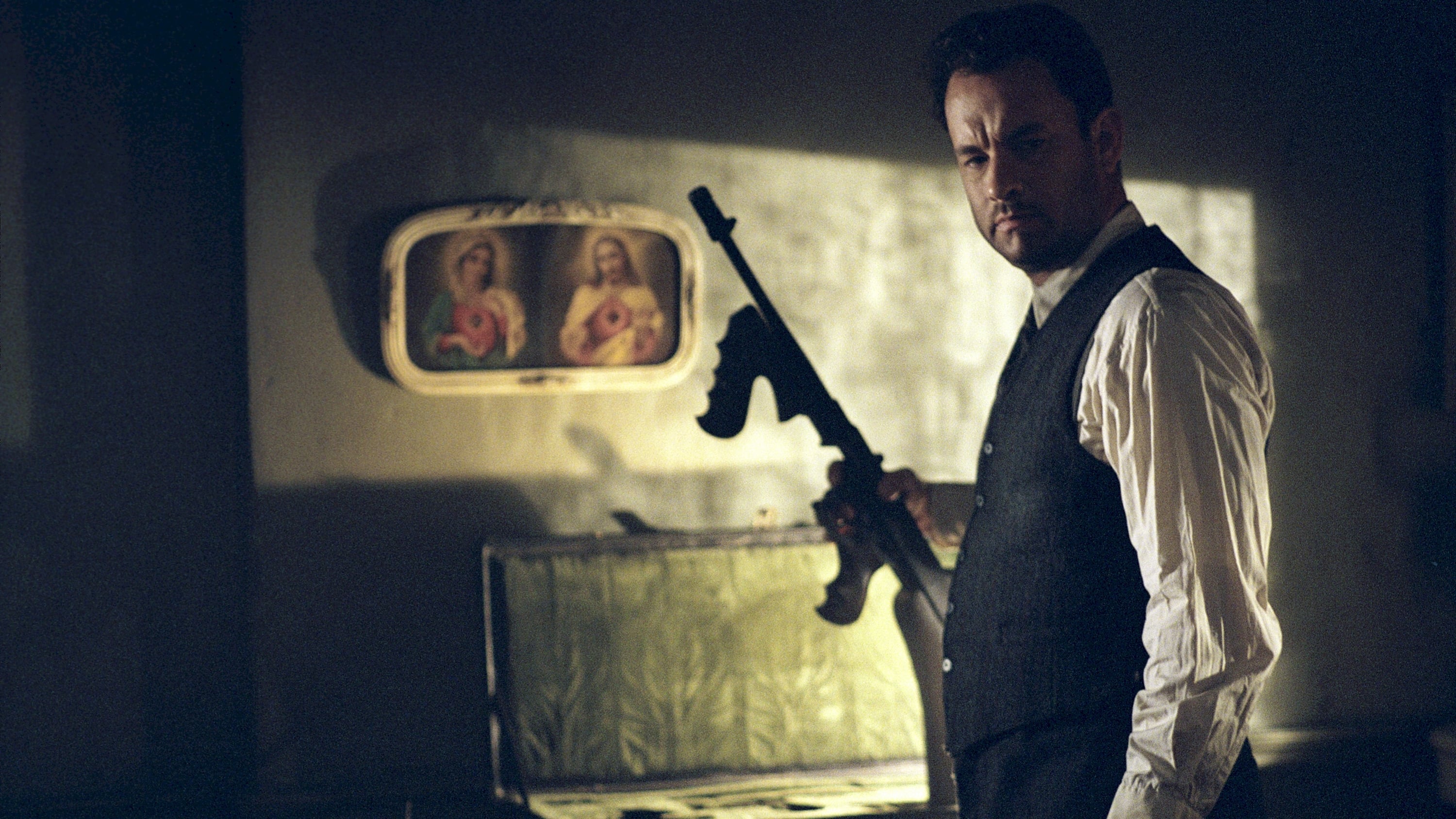
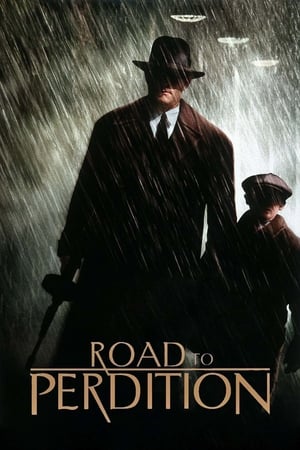
Road to Perdition
Pray for Michael Sullivan.
2002 • 1h 57min • ★ 7.356/10 • United States of America
Directed by: Sam Mendes
Cast: Tom Hanks, Tyler Hoechlin, Paul Newman, Jude Law, Daniel Craig
Mike Sullivan works as a hit man for crime boss John Rooney. Sullivan views Rooney as a father figure, however after his son is witness to a killing, Mike Sullivan finds himself on the run in attempt to save the life of his son and at the same time looking for revenge on those who wronged him.
Road to Perdition” is a 2002 American crime film directed by Sam Mendes. The film is based on the graphic novel of the same name by Max Allan Collins and Richard Piers Rayner.
It is set in the 1930s during the Great Depression and tells the story of a hitman named Michael Sullivan (played by Tom Hanks) and his son, Michael Jr. (played by Tyler Hoechlin).
Michael Sullivan works for an Irish-American mobster named John Rooney (played by Paul Newman).
When Michael’s son accidentally witnesses a murder committed by Rooney’s unstable son, Connor (played by Daniel Craig), the two are thrown into a life of danger and pursued by both the mob and a relentless hitman named Maguire (played by Jude Law).
As they go on the run, Michael seeks revenge and tries to protect his son from the violence and corruption that surrounds them.
“Road to Perdition” is known for its atmospheric cinematography, evoking a noir-like visual style that enhances the film’s dark and moody tone. It explores themes of loyalty, family, and the choices we make in the face of adversity.
The film received critical acclaim for its strong performances, particularly from Tom Hanks and Paul Newman, as well as its compelling storytelling and well-executed action sequences. It was nominated for six Academy Awards, including Best Supporting Actor for Paul Newman.
“Road to Perdition” is regarded as a visually stunning and emotionally powerful crime drama that delves into the moral complexities of its characters and the consequences of their actions.
Please note that “Road to Perdition” is widely available on various streaming platforms and in DVD and Blu-ray formats.
- PAL
- Danish, Finnish, Icelandic, Norwegian, Swedish (Subtitles)
- Audience Rating: R (Restricted)
2. Dances With Wolves (1990)
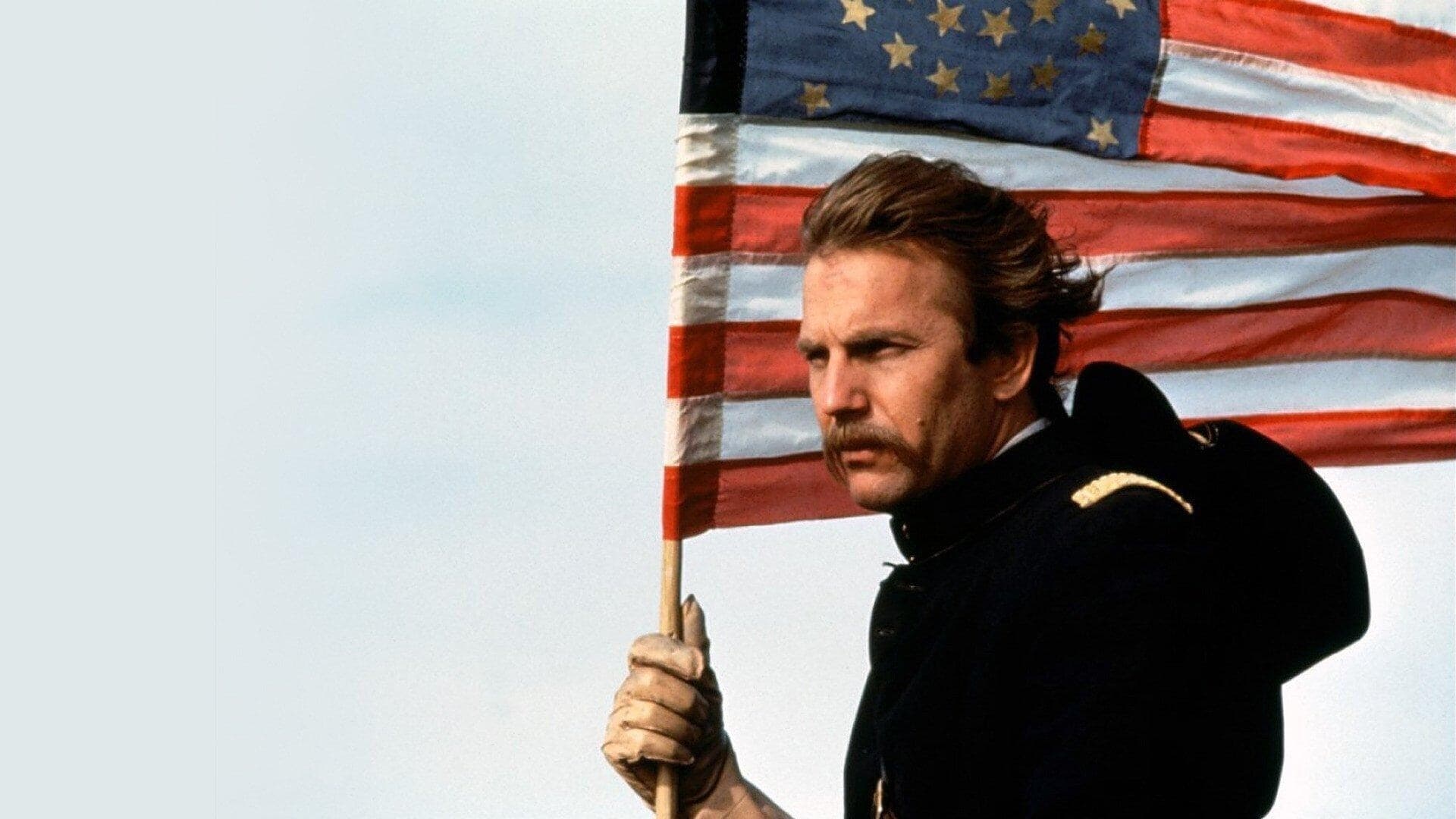

Dances with Wolves
Inside everyone is a frontier waiting to be discovered.
1990 • 3h 1min • ★ 7.845/10 • United Kingdom
Directed by: Kevin Costner
Cast: Kevin Costner, Mary McDonnell, Graham Greene, Rodney A. Grant, Floyd "Red Crow" Westerman
Wounded Civil War soldier John Dunbar tries to commit suicide—and becomes a hero instead. As a reward, he's assigned to his dream post, a remote junction on the Western frontier, and soon makes unlikely friends with the local Sioux tribe.
“Dances with Wolves” is a 1990 epic Western film directed by Kevin Costner, who also stars as the lead character. The film is based on the novel of the same name by Michael Blake.
It tells the story of Lieutenant John J. Dunbar, a Union Army officer who befriends and integrates with a Native American tribe during the American frontier period.
Set during the American Civil War, the film follows Dunbar as he is stationed at a remote outpost on the western frontier.
Initially alone and isolated, Dunbar gradually forms a bond with a local Lakota Sioux tribe and becomes accepted into their community. He adopts the Lakota name “Dances with Wolves” and develops a deep respect for their culture and way of life.
Through his experiences, Dunbar gains insights into the complexities of the relationship between Native Americans and white settlers. The film explores themes of cultural understanding, environmentalism, and the destructive impacts of colonization on Indigenous communities.
“Dances with Wolves” received critical acclaim for its breathtaking cinematography, powerful performances, and its sensitive portrayal of Native American culture. It won seven Academy Awards, including Best Picture and Best Director.
The film is known for its sweeping landscapes, memorable characters, and its depiction of the clash between different ways of life. It showcases the beauty of the American frontier and offers a contemplative exploration of identity, friendship, and the human connection to nature.
“Dances with Wolves” is considered a landmark film in the Western genre, providing a nuanced portrayal of Native American perspectives and challenging traditional stereotypes. It remains a beloved and influential film that continues to resonate with audiences.
No products found.
3. Bonnie and Clyde (1967)
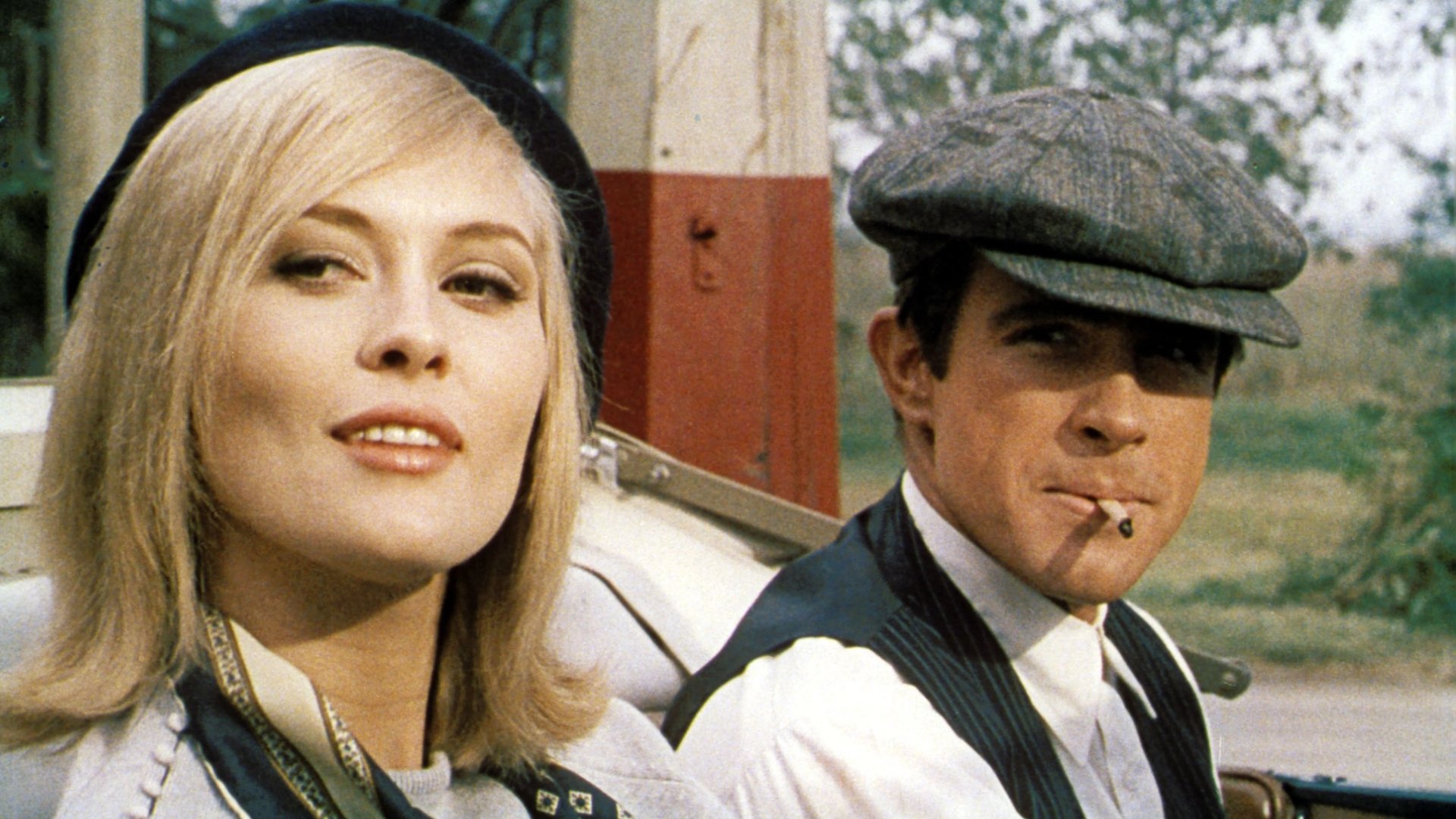
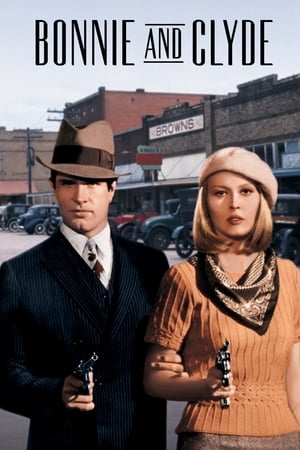
Bonnie and Clyde
They’re young… they’re in love… and they kill people.
1967 • 1h 51min • ★ 7.5/10 • United States of America
Directed by: Arthur Penn
Cast: Warren Beatty, Faye Dunaway, Michael J. Pollard, Gene Hackman, Estelle Parsons
In the 1930s, bored waitress Bonnie Parker falls in love with an ex-con named Clyde Barrow and together they start a violent crime spree through the country, stealing cars and robbing banks.
“Bonnie and Clyde” is a 1967 American crime film directed by Arthur Penn. The film tells the story of Bonnie Parker (played by Faye Dunaway) and Clyde Barrow (played by Warren Beatty), a notorious criminal couple who gained notoriety during the Great Depression in the 1930s.
The film follows Bonnie and Clyde as they embark on a series of bank robberies and other criminal activities, accompanied by a group of associates.
As their criminal spree continues, they capture the attention of the media and become folk heroes to the public, even as law enforcement agencies intensify their efforts to capture them.
“Bonnie and Clyde” is known for its innovative and influential approach to storytelling and filmmaking. It was one of the first films to challenge traditional Hollywood conventions, blending elements of crime drama, romance, and dark comedy.
It features stylish cinematography, rapid-fire editing, and a unique visual aesthetic that captures the gritty and violent nature of the story.
The film’s exploration of rebellion, youthful disillusionment, and the mythologizing of criminals struck a chord with audiences and critics alike.
It is often credited with ushering in a new era of American filmmaking known as the “New Hollywood” movement, which embraced unconventional narratives and tackled controversial subjects.
“Bonnie and Clyde” received ten Academy Award nominations and is widely regarded as a classic of American cinema.
It continues to be celebrated for its groundbreaking storytelling, memorable performances, and its exploration of complex characters driven by passion, violence, and the pursuit of freedom.
The film’s impact can still be felt in contemporary cinema, and it remains a significant entry in the history of American film, revered for its artistic achievements and its contribution to the evolution of filmmaking techniques and storytelling conventions.
- Warren Beatty, Faye Dunaway, Michael J. Pollard (Actors)
- Arthur Penn (Director) - David Newman (Writer)
- English, Spanish, French (Subtitles)
- Audience Rating: R (Restricted)
4. The Revenant (2015)
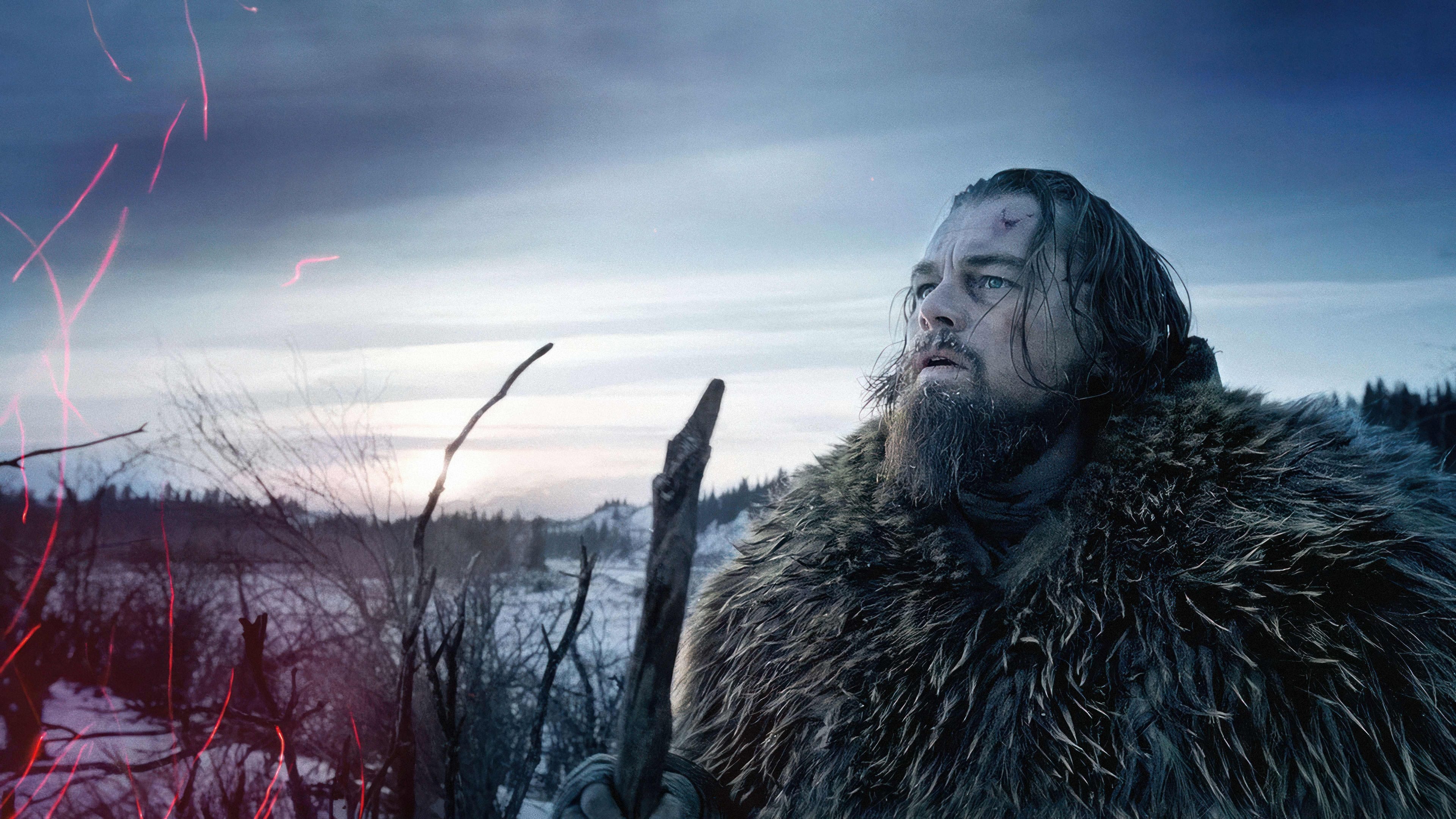
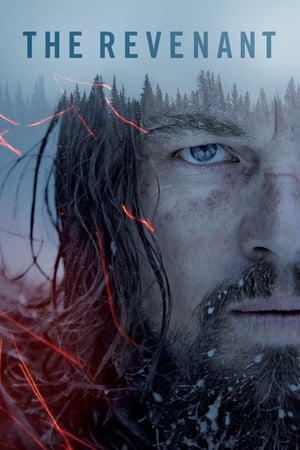
The Revenant
Blood lost. Life found.
2015 • 2h 37min • ★ 7.534/10 • Canada
Directed by: Alejandro González Iñárritu
Cast: Leonardo DiCaprio, Tom Hardy, Domhnall Gleeson, Will Poulter, Forrest Goodluck
In the 1820s, a frontiersman, Hugh Glass, sets out on a path of vengeance against those who left him for dead after a bear mauling.
“The Revenant” is a 2015 American epic survival drama film directed by Alejandro González Iñárritu. The film is loosely based on the novel of the same name by Michael Punke and is inspired by the real-life experiences of frontiersman Hugh Glass.
Set in the early 19th century American frontier, the story follows Hugh Glass, played by Leonardo DiCaprio, a fur trapper who is left for dead by his companions after being mauled by a bear.
Determined to survive and seek revenge, Glass embarks on a treacherous journey through the harsh wilderness to track down the men who abandoned him.
“The Revenant” is known for its visually stunning cinematography, with the film capturing the rugged and awe-inspiring landscapes of the American West. It also delves into themes of survival, revenge, and the indomitable human spirit in the face of overwhelming adversity.
The film received critical acclaim and was a commercial success. It won numerous awards, including three Academy Awards, with Leonardo DiCaprio winning the Best Actor Oscar for his intense and physically demanding performance.
“The Revenant” is celebrated for its technical achievements, including the use of natural lighting and long, immersive takes that create a sense of realism and immediacy.
It is a visceral and emotionally gripping film that showcases the resilience of the human body and the power of the human will.
Directed with masterful craftsmanship by Alejandro González Iñárritu, “The Revenant” is an epic and visually striking cinematic experience that explores themes of survival and revenge against a breathtaking backdrop of untamed nature.
No products found.
5. The Hustler (1961)
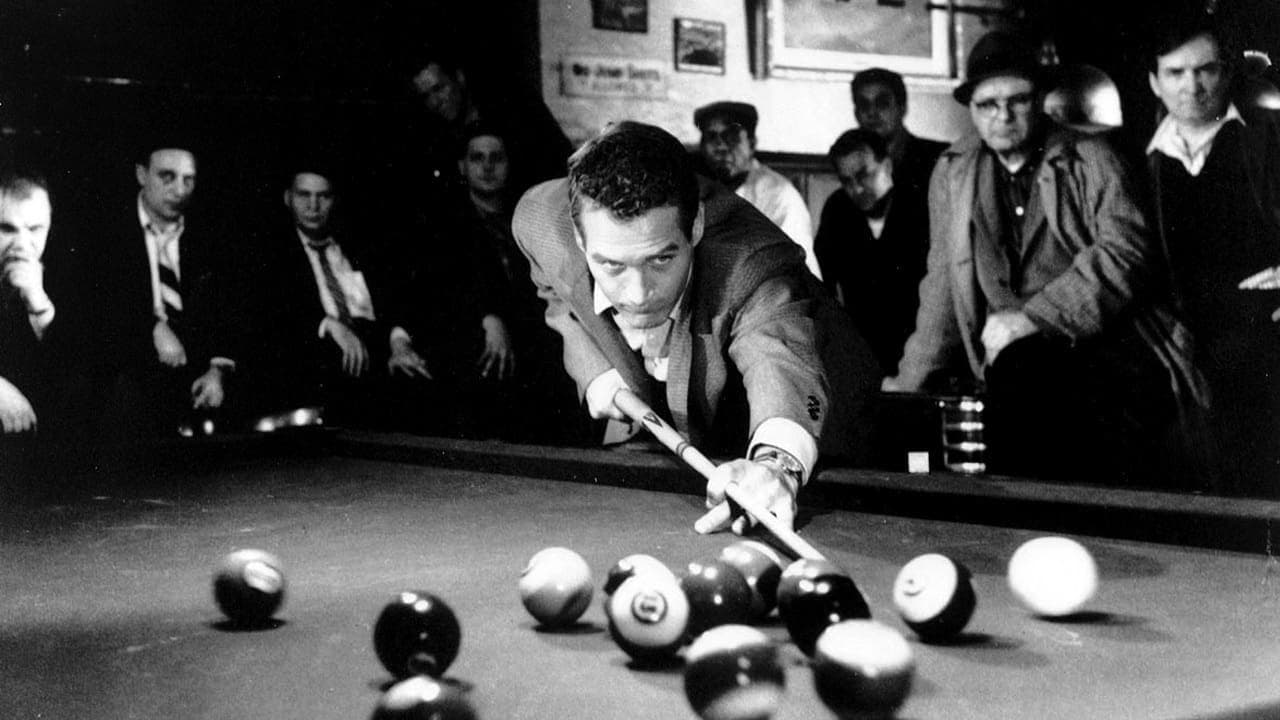

The Hustler
They called him Fast Eddie. He was a winner. He was a loser. He was a hustler.
1961 • 2h 14min • ★ 7.7/10 • United States of America
Directed by: Robert Rossen
Cast: Paul Newman, Jackie Gleason, Piper Laurie, George C. Scott, Myron McCormick
Fast Eddie Felson is a small-time pool hustler with a lot of talent but a self-destructive attitude. His bravado causes him to challenge the legendary Minnesota Fats to a high-stakes match.
“The Hustler” is a 1961 American drama film directed by Robert Rossen. It stars Paul Newman as “Fast” Eddie Felson, a talented but self-destructive pool player who seeks to prove himself as the best in the game.
In “The Hustler,” Eddie Felson is a young and ambitious pool player who travels from one pool hall to another, hustling unsuspecting opponents for money.
He dreams of challenging and defeating the legendary pool player Minnesota Fats, played by Jackie Gleason. Along the way, Eddie encounters various characters, including Sarah Packard, played by Piper Laurie, who becomes a love interest and offers him emotional support.
The film explores themes of ambition, competition, integrity, and the price of success. It delves into Eddie’s internal struggles with pride, addiction, and the desire for validation as he navigates the cutthroat world of high-stakes pool.
“The Hustler” received critical acclaim for its gripping performances, intense character study, and atmospheric depiction of the pool hall subculture.
Paul Newman’s portrayal of Eddie Felson is widely regarded as one of his most iconic roles. The film was nominated for multiple Academy Awards, including Best Picture.
Please note that my knowledge is based on information available up until September 2021, and there may have been subsequent developments or details related to “The Hustler” that I’m unaware of.
- The Hustler - DVD Brand New
- Paul Newman, Jackie Gleason, Piper Laurie (Actors)
- Robert Rossen (Director) - Robert Rossen (Writer)
- English, Spanish (Subtitles)
- English (Publication Language)
6. There Will Be Blood (2007)
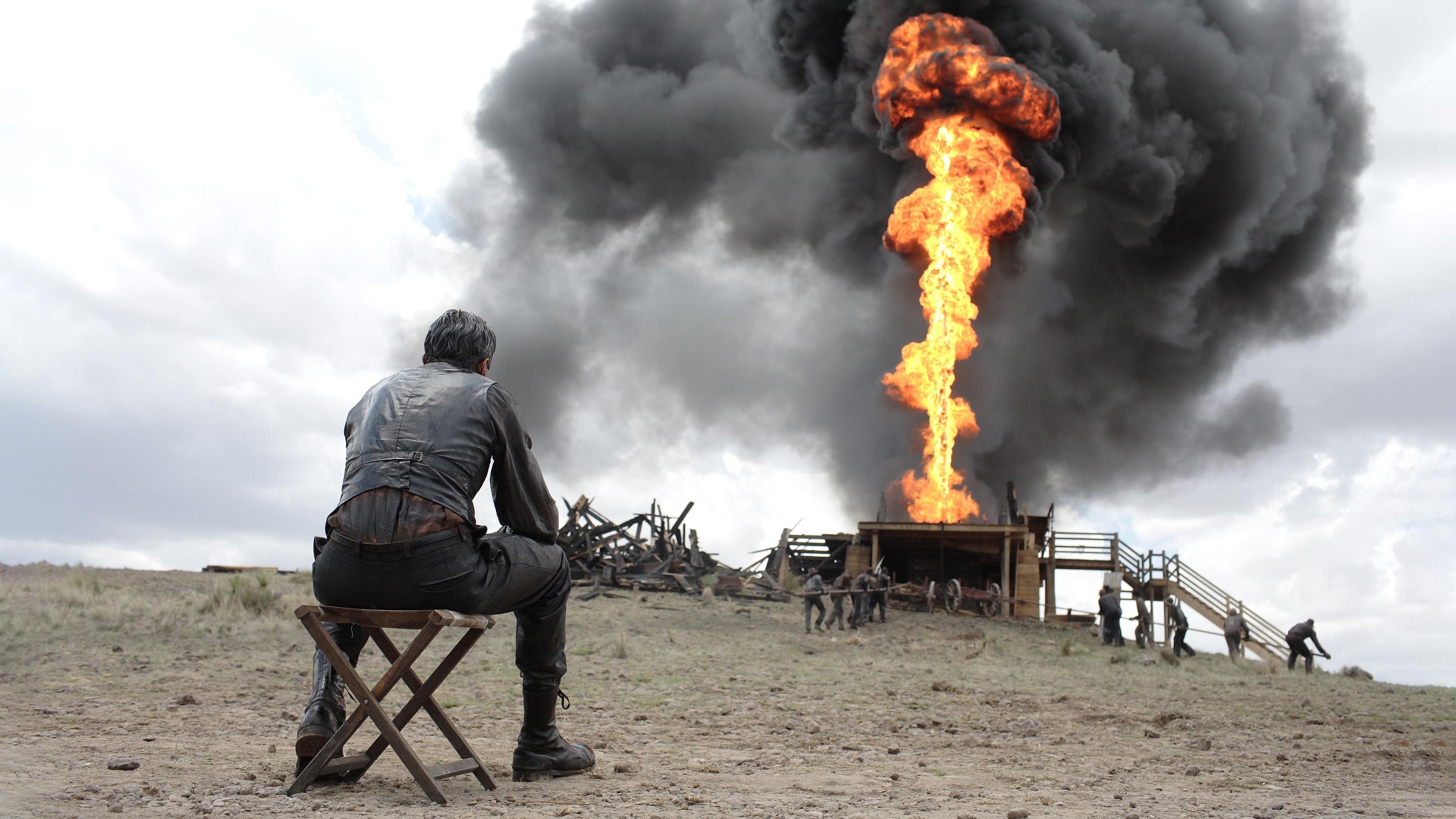
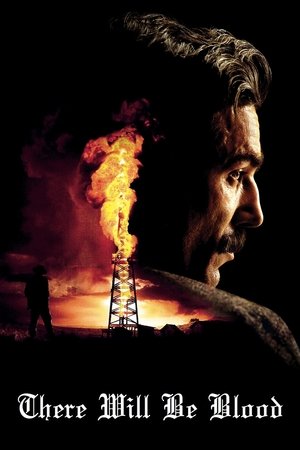
There Will Be Blood
There will be greed. There will be vengeance.
2007 • 2h 38min • ★ 8.072/10 • United States of America
Directed by: Paul Thomas Anderson
Cast: Daniel Day-Lewis, Paul Dano, Kevin J. O'Connor, Ciarán Hinds, Dillon Freasier
Ruthless silver miner, turned oil prospector, Daniel Plainview, moves to oil-rich California. Using his son to project a trustworthy, family-man image, Plainview cons local landowners into selling him their valuable properties for a pittance. However, local preacher Eli Sunday suspects Plainview's motives and intentions, starting a slow-burning feud that threatens both their lives.
“There Will Be Blood” is an American drama film released in 2007, directed by Paul Thomas Anderson. The film is loosely based on the 1927 novel “Oil!” by Upton Sinclair and is known for its intense performances and meticulous filmmaking.
Set in the early 20th century, the story follows Daniel Plainview, played by Daniel Day-Lewis, an ambitious and ruthless oil prospector.
As Plainview strikes oil and amasses wealth, his greed and thirst for power become increasingly destructive, leading to a clash with a young preacher named Eli Sunday, portrayed by Paul Dano.
“There Will Be Blood” explores themes of capitalism, religion, and the dark side of the American Dream. The film delves into the moral complexities of its characters and examines the corrupting nature of unchecked ambition.
Paul Thomas Anderson’s direction in the film is celebrated for its visual grandeur, compelling storytelling, and attention to detail.
The movie features long takes, atmospheric cinematography, and a haunting score by Jonny Greenwood, which all contribute to its immersive and atmospheric experience.
The film received widespread critical acclaim and garnered numerous accolades, including Academy Awards for Best Actor (Daniel Day-Lewis) and Best Cinematography.
“There Will Be Blood” is praised for its powerhouse performances, thought-provoking narrative, and its exploration of human greed and the lengths people will go to achieve their goals.
It is considered a modern classic and is recognized as one of the most significant films of the 21st century. “There Will Be Blood” stands as a testament to Paul Thomas Anderson’s directorial prowess and Daniel Day-Lewis’ exceptional acting talent.
- Daniel Day-Lewis, Barry Del Sherman, Dillon Freasier (Actors)
- Paul Thomas Anderson (Director)
- English, French, Spanish (Subtitles)
- English (Publication Language)
- Audience Rating: R (Restricted)
7. Fanny and Alexander (1982)
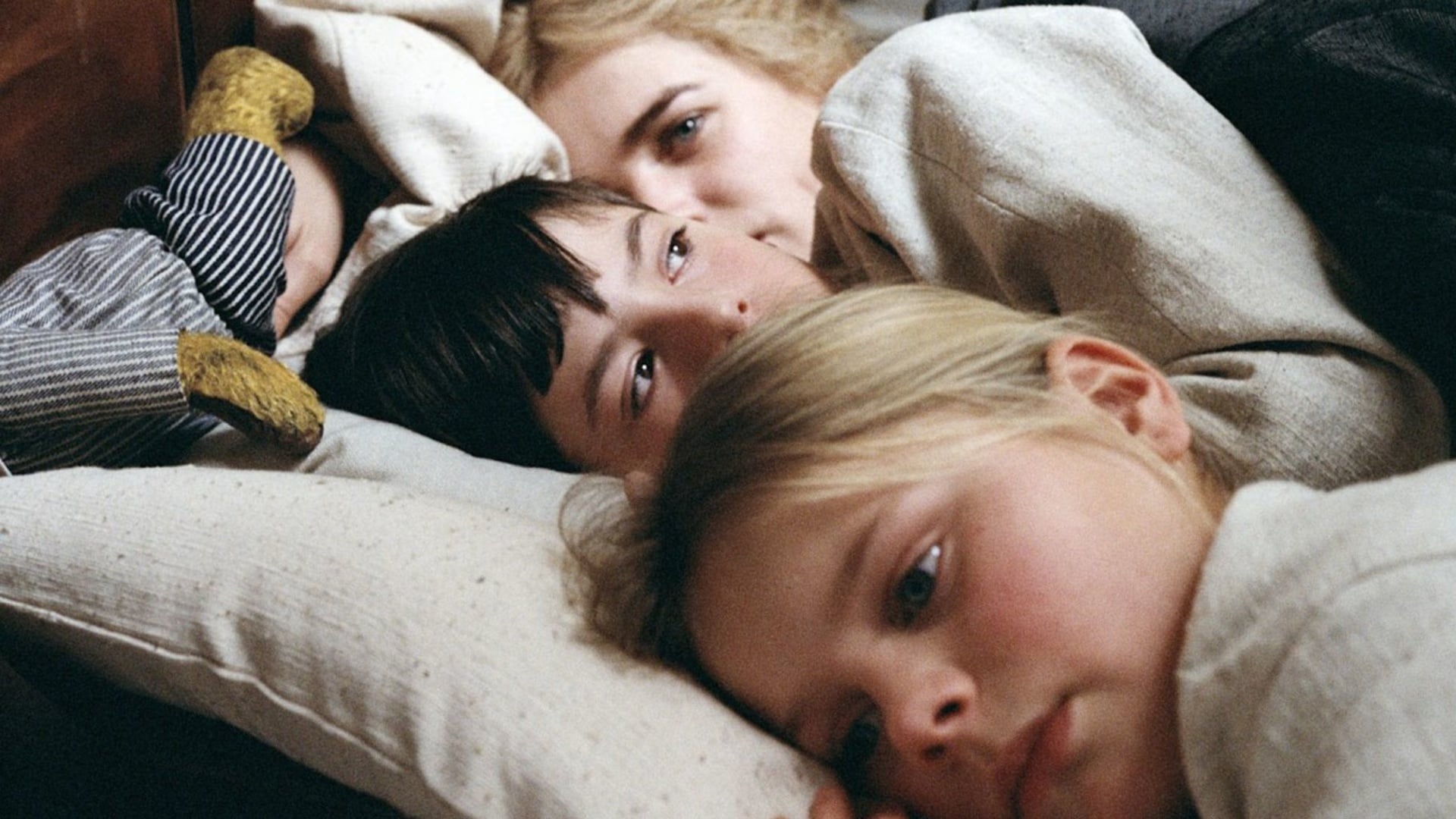
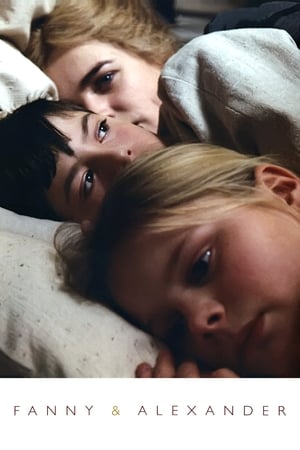
Fanny and Alexander
1982 • 3h 8min • ★ 7.8/10 • Sweden
Directed by: Ingmar Bergman
Cast: Pernilla Allwin, Bertil Guve, Jan Malmsjö, Börje Ahlstedt, Anna Bergman
As children in the loving Ekdahl family, Fanny and Alexander enjoy a happy life with their parents, who run a theater company. After their father dies unexpectedly, however, the siblings end up in a joyless home when their mother, Emilie, marries a stern bishop. The bleak situation gradually grows worse as the bishop becomes more controlling, but dedicated relatives make a valiant attempt to aid Emilie, Fanny and Alexander.
“Fanny and Alexander” (original title: “Fanny och Alexander”) is a 1982 Swedish drama film directed by Ingmar Bergman. It is considered one of Bergman’s masterpieces and is often hailed as one of the greatest films ever made.
Set in early 20th-century Sweden, “Fanny and Alexander” tells the story of the Ekdahl family, particularly through the eyes of the two titular siblings, Fanny and Alexander.
The film explores their lives, experiences, and relationships within the context of their theatrical family and the wider society.
The narrative of “Fanny and Alexander” unfolds in several acts, each highlighting different aspects of the characters’ lives and the complexities of their relationships.
The film touches upon themes such as family dynamics, childhood innocence, artistic expression, spirituality, and the contrasts between fantasy and reality.
Ingmar Bergman’s direction in “Fanny and Alexander” showcases his mastery of visual storytelling and his deep exploration of human emotions and existential questions.
The film is visually rich, with sumptuous production design and cinematography that captures both the beauty and darkness of the world depicted.
“Fanny and Alexander” received critical acclaim upon its release and won four Academy Awards, including Best Foreign Language Film.
It is celebrated for its lush visuals, intricate storytelling, and the depth of its characters. The film showcases Bergman’s signature style, blending naturalistic performances with elements of fantasy and surrealism.
Through its exploration of family dynamics, the film delves into the complexities of love, loss, and the transformative power of art.
It captures the essence of childhood and the transition into adulthood, and it reflects on the role of memory and imagination in shaping our understanding of the world.
Overall, “Fanny and Alexander” is a captivating and deeply emotional film that invites viewers to reflect on the complexities of human existence.
It stands as a testament to Ingmar Bergman’s remarkable talent as a filmmaker and his ability to create profound and thought-provoking cinematic experiences.
- Ingmar Bergman (Director)
- English (Subtitle)
- Swedish (Publication Language)
- Audience Rating: R (Restricted)
8. The Last Emperor (1987)
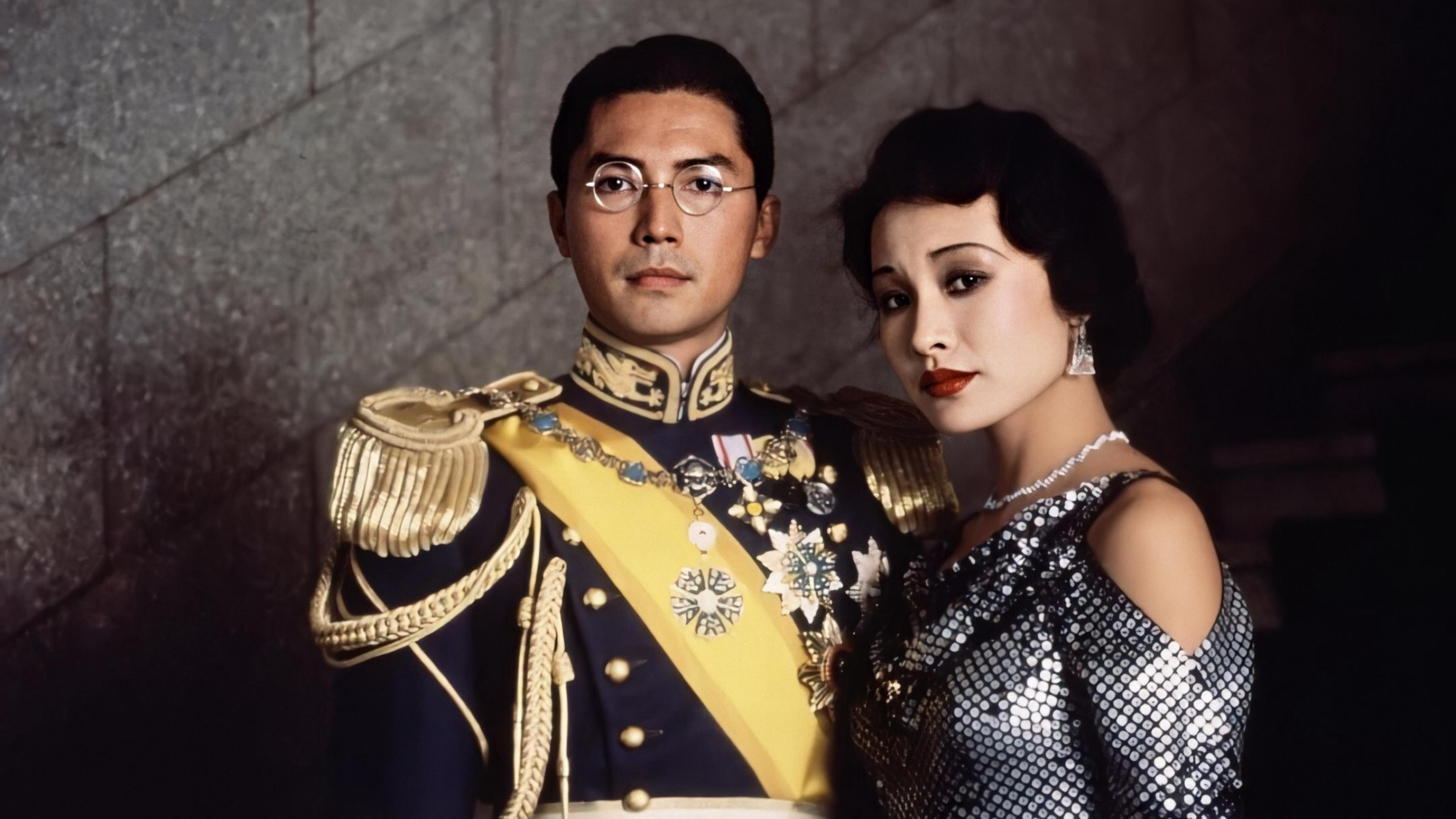

The Last Emperor
1500 slaves. 353,260,000 royal subjects. Warlords. Concubines. And 2 wives. He was the loneliest boy in the world.
1987 • 2h 43min • ★ 7.6/10 • Italy
Directed by: Bernardo Bertolucci
Cast: John Lone, Joan Chen, Peter O'Toole, Ruocheng Ying, Victor Wong
A dramatic history of Pu Yi, the last of the Emperors of China, from his lofty birth and brief reign in the Forbidden City, the object of worship by half a billion people; through his abdication, his decline and dissolute lifestyle; his exploitation by the invading Japanese, and finally to his obscure existence as just another peasant worker in the People's Republic.
“The Last Emperor” is a 1987 epic biographical drama film directed by Bernardo Bertolucci. The film tells the extraordinary life story of Pu Yi, who was the last emperor of China and witnessed the dramatic transformation of the country during the early 20th century.
“The Last Emperor” chronicles Pu Yi’s life from his childhood when he ascends to the throne as a young boy to his later years as a captive of the Communist government.
The film explores Pu Yi’s personal journey, his experiences within the Forbidden City, his relationships with those around him, and the political and social changes that shaped China’s history.
The film offers a visually stunning portrayal of the opulent world of the Qing Dynasty, the grandeur of the Forbidden City, and the subsequent tumultuous events that led to the fall of the monarchy and the establishment of the People’s Republic of China.
“The Last Emperor” was critically acclaimed and won nine Academy Awards, including Best Picture, Best Director, and Best Cinematography.
It is known for its meticulous attention to historical detail, powerful performances, and its exploration of themes such as power, identity, and the clash between tradition and modernity.
Please note that “The Last Emperor” is widely available on various streaming platforms and in DVD and Blu-ray formats. It is considered a landmark film and a significant contribution to cinema’s depiction of historical events and figures.
- Factory sealed DVD
- John Lone, Joan Chen, Peter O'Toole (Actors)
- Bernardo Bertolucci (Director)
- English (Publication Language)
- Audience Rating: R (Restricted)
9. Apocalypse Now (1979)
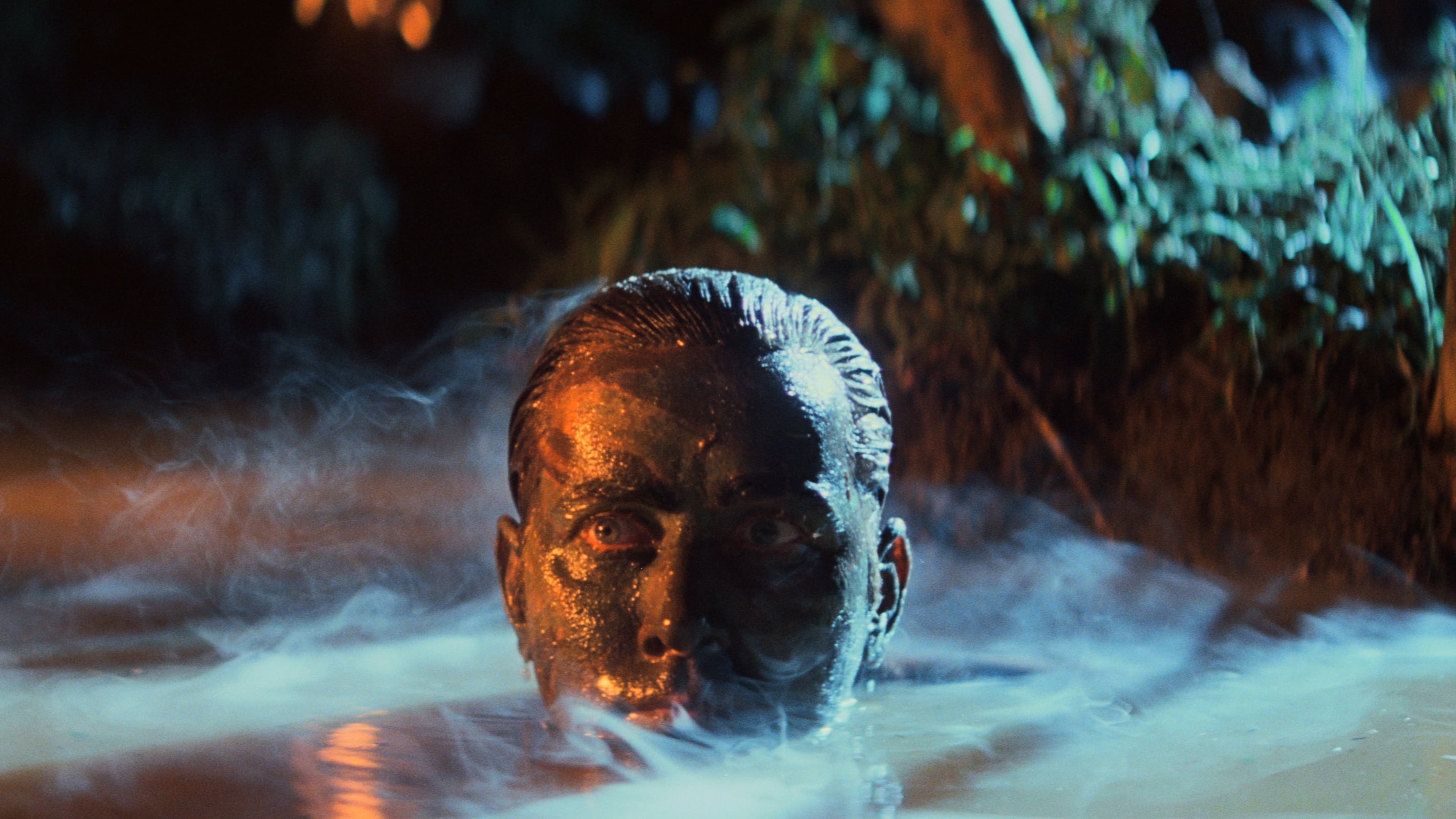
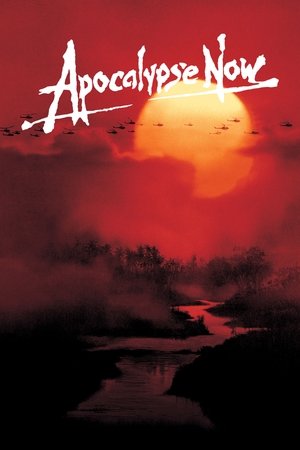
Apocalypse Now
1979 • 2h 27min • ★ 8.3/10 • United States of America
Directed by: Francis Ford Coppola
Cast: Martin Sheen, Marlon Brando, Albert Hall, Frederic Forrest, Laurence Fishburne
At the height of the Vietnam war, Captain Benjamin Willard is sent on a dangerous mission that, officially, "does not exist, nor will it ever exist." His goal is to locate - and eliminate - a mysterious Green Beret Colonel named Walter Kurtz, who has been leading his personal army on illegal guerrilla missions into enemy territory.
“Apocalypse Now” is a 1979 epic war film directed by Francis Ford Coppola.
Loosely based on Joseph Conrad’s novella “Heart of Darkness,” the film follows the journey of Captain Benjamin L. Willard (played by Martin Sheen), a U.S.
Army officer, as he is assigned to travel upriver into the heart of Vietnam during the Vietnam War to assassinate a renegade Special Forces officer, Colonel Walter E. Kurtz (played by Marlon Brando).
The film explores the brutality, horror, and psychological impact of war. As Willard makes his way through the war-torn landscape, he encounters various characters and witnesses the moral degradation and madness that envelops both the American military and the Vietnamese people.
“Apocalypse Now” delves into themes of the human condition, the nature of power, and the destructive forces unleashed during times of war.
It portrays the loss of humanity and sanity in the face of conflict and raises profound questions about the ethics of warfare and the corruption of power.
The film is renowned for its exceptional cinematography, immersive sound design, and gripping performances.
It is remembered for its iconic scenes, including the use of Richard Wagner’s “Ride of the Valkyries” during a helicopter assault and Colonel Kurtz’s monologue on the nature of war.
“Apocalypse Now” is considered a cinematic masterpiece and a landmark in the war film genre. It offers a thought-provoking exploration of the human psyche in extreme circumstances and the devastating effects of war on individuals and societies.
The film has had a lasting impact on popular culture and continues to be studied and analyzed for its artistic and thematic significance.
- Amazon Prime Video (Video on Demand)
- Marlon Brando, Robert Duvall, Martin Sheen (Actors)
- Francis Coppola (Director) - John Milius (Writer) - Francis Ford Coppola (Producer)
- English (Playback Language)
- English (Subtitle)
10. Days of Heaven (1978)
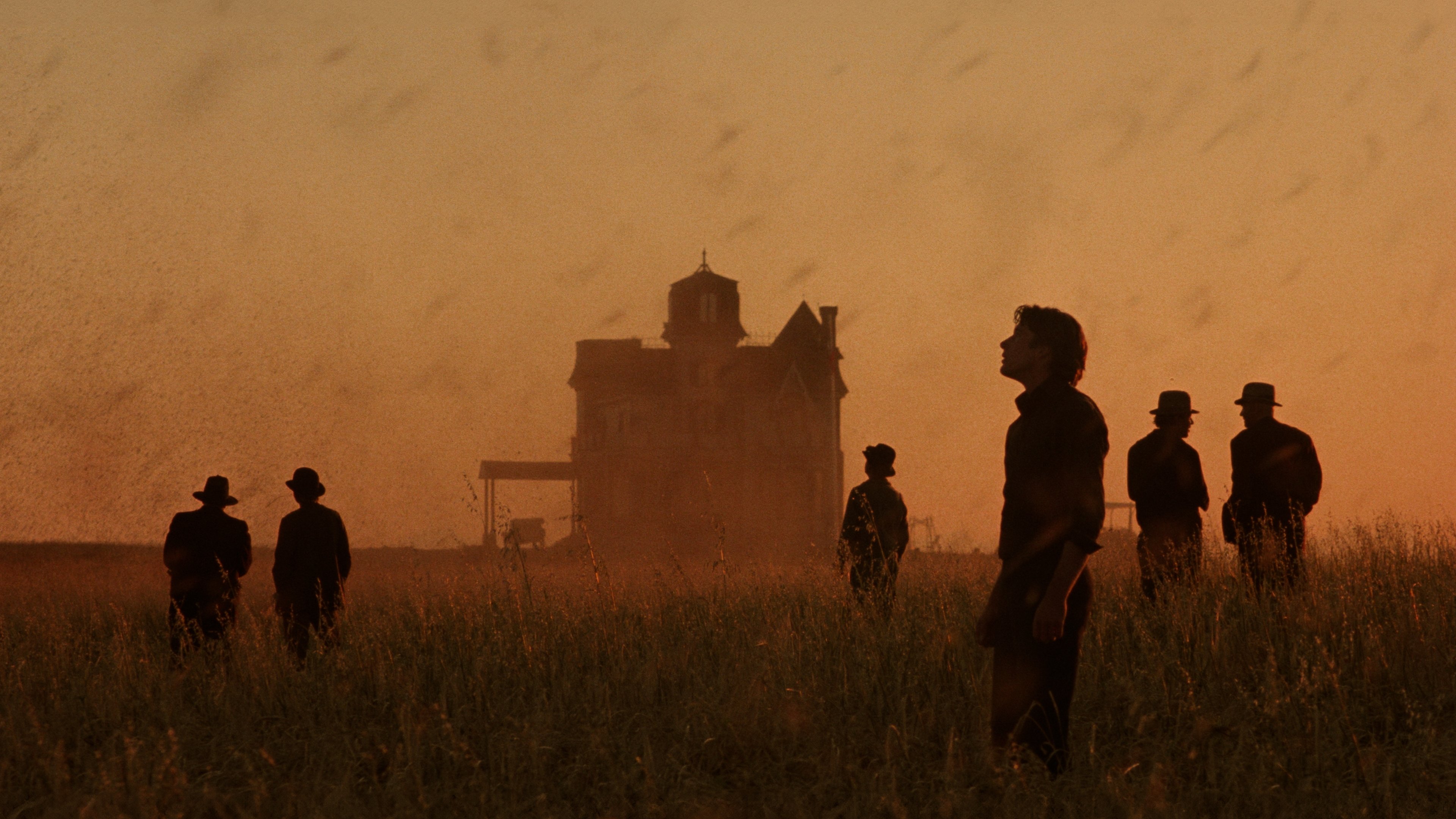
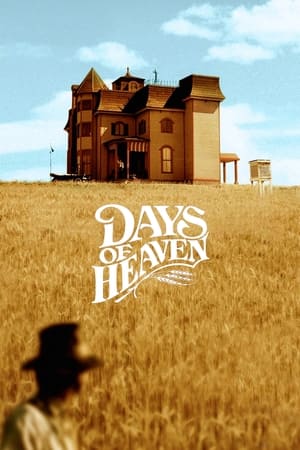
Days of Heaven
She gave her hand to one man, but her heart to another.
1978 • 1h 34min • ★ 7.501/10 • United States of America
Directed by: Terrence Malick
Cast: Richard Gere, Brooke Adams, Sam Shepard, Linda Manz, Robert J. Wilke
In 1916, a Chicago steel worker accidentally kills his supervisor and flees to the Texas panhandle with his girlfriend and little sister to work harvesting wheat in the fields of a stoic farmer.
“Days of Heaven” is a 1978 American drama film directed by Terrence Malick. The film is set in the early 20th century and follows a group of itinerant workers who find employment on a wealthy farmer’s land in Texas.
The story is primarily told from the perspective of a young girl named Linda (played by Linda Manz), who narrates the events with her distinctive voice.
Linda, her older sister Bill (played by Brooke Adams), and her boyfriend Abby (played by Richard Gere) pose as siblings to work on the farm, hoping to exploit the romantic interest of the farm’s owner, known as The Farmer (played by Sam Shepard).
As time passes, complicated relationships, unrequited love, and jealousy begin to strain the delicate balance within the group.
The narrative unfolds against the backdrop of the beautiful wheat fields of Texas, capturing the sweeping landscapes and evoking a sense of both grandeur and isolation.
“Days of Heaven” is celebrated for its stunning cinematography, captured by Nestor Almendros and Haskell Wexler, which earned the film an Academy Award.
The film’s visual beauty, combined with its poetic and contemplative style, has become one of its defining features.
Terrence Malick’s direction in “Days of Heaven” is characterized by his signature impressionistic approach, utilizing natural light and long takes to create a dreamlike and ethereal atmosphere.
The film explores themes of love, betrayal, and the human desire for a better life, all set against the backdrop of an unforgiving and relentless natural world.
Upon its release, “Days of Heaven” received critical acclaim for its visual aesthetics, innovative storytelling, and powerful performances.
While initially not a commercial success, the film has since garnered a reputation as a masterpiece of American cinema and has influenced subsequent filmmakers with its artistic vision and unique style.
“Days of Heaven” continues to be regarded as a significant work in Terrence Malick’s filmography and is cherished by cinephiles for its visual splendor, poetic storytelling, and emotional resonance.
No products found.
12. Schindler’s List (1993)
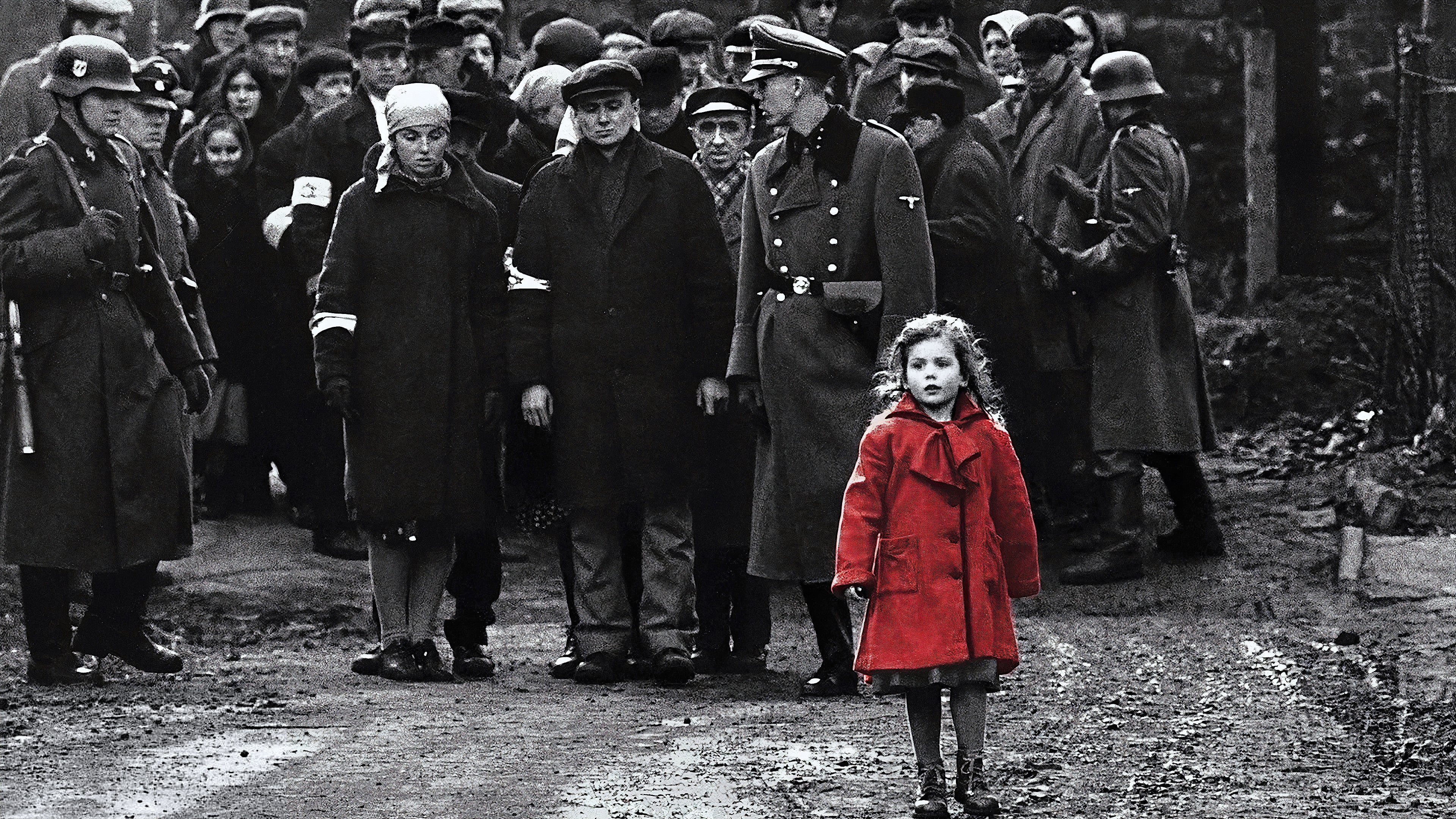

Schindler's List
Whoever saves one life, saves the world entire.
1993 • 3h 15min • ★ 8.564/10 • United States of America
Directed by: Steven Spielberg
Cast: Liam Neeson, Ben Kingsley, Ralph Fiennes, Caroline Goodall, Jonathan Sagall
The true story of how businessman Oskar Schindler saved over a thousand Jewish lives from the Nazis while they worked as slaves in his factory during World War II.
“Schindler’s List” is a 1993 American historical drama film directed by Steven Spielberg.
It is based on the novel “Schindler’s Ark” by Thomas Keneally and tells the true story of Oskar Schindler, a German industrialist who saved the lives of more than a thousand Jewish refugees during the Holocaust.
The film is set during World War II and follows Oskar Schindler, played by Liam Neeson, as he establishes a factory in Kraków, Poland, to take advantage of cheap Jewish labor.
However, as he witnesses the atrocities committed against the Jewish population, Schindler undergoes a profound change of heart. He uses his wealth and influence to protect his workers, employing various strategies to ensure their survival.
“Schindler’s List” is known for its stark black-and-white cinematography, which adds to the film’s somber and haunting atmosphere. It explores themes of compassion, heroism, and the moral complexities of human nature in the face of extreme adversity.
The film received widespread critical acclaim and was a major commercial success. It won seven Academy Awards, including Best Picture and Best Director, and has since been regarded as one of the greatest films ever made.
“Schindler’s List” continues to be recognized for its powerful storytelling, outstanding performances, and its unflinching depiction of the Holocaust.
Beyond its cinematic impact, the film has played a significant role in raising awareness about the Holocaust and its historical significance. It serves as a testament to the resilience of the human spirit and the capacity for individuals to make a difference in the face of evil.
“Schindler’s List” stands as a poignant and powerful portrayal of one man’s extraordinary efforts to save lives during one of the darkest chapters in human history. It is a testament to the importance of remembrance, compassion, and the fight against injustice.
- Amazon Prime Video (Video on Demand)
- Ben Kingsley, Liam Neeson, Ralph Fiennes (Actors)
- Steven Spielberg (Director) - Steven Spielberg (Producer)
- English (Playback Language)
- English (Subtitle)
13. Birdman or (The Unexpected Virtue of Ignorance) (2014)
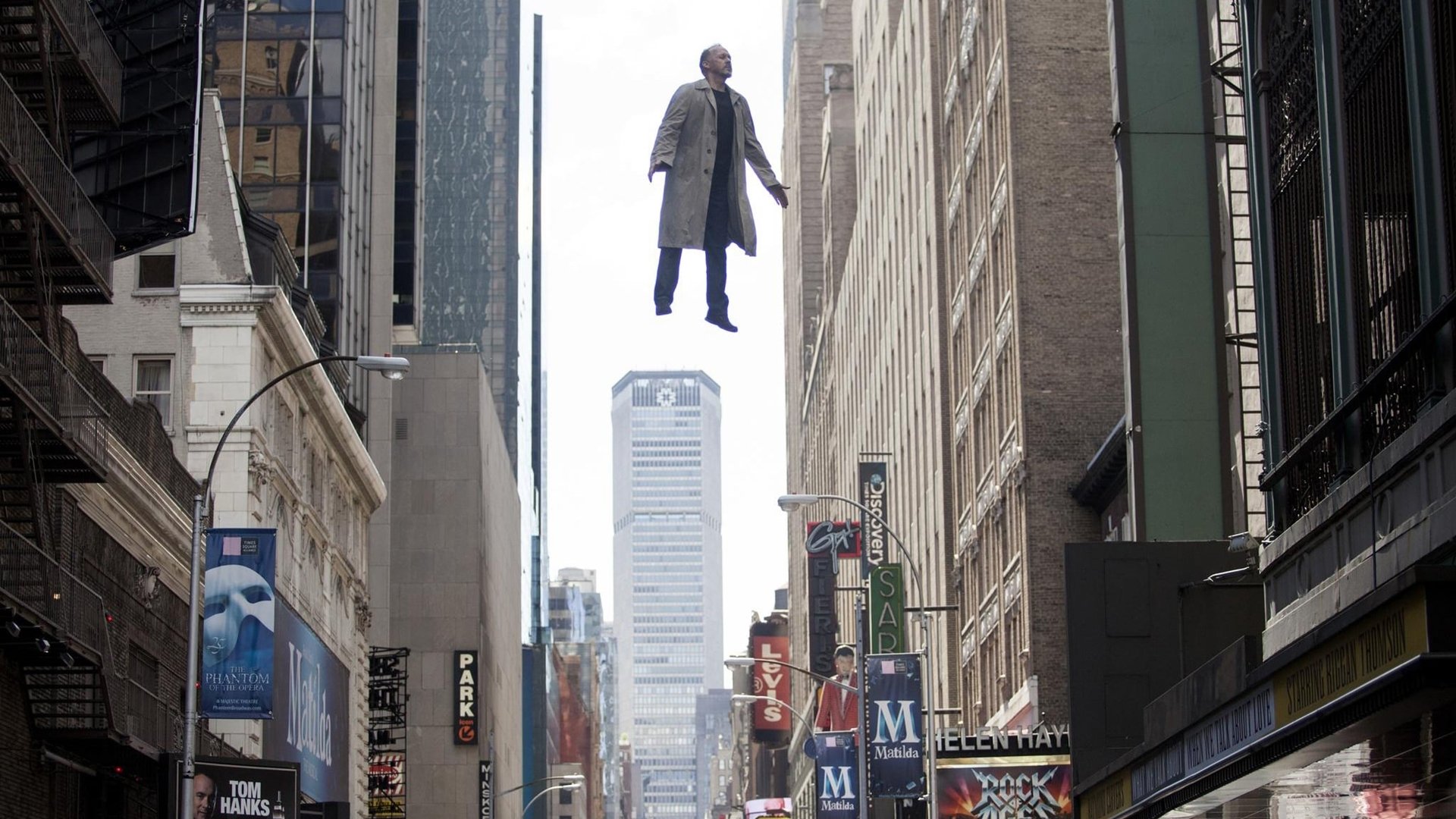
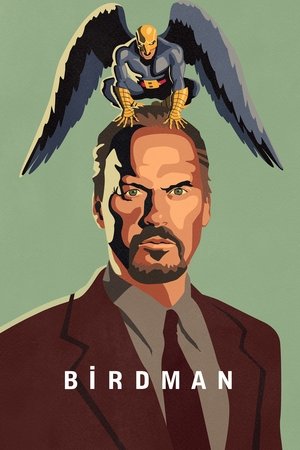
Birdman or (The Unexpected Virtue of Ignorance)
How did we end up here?
2014 • 2h 0min • ★ 7.454/10 • United States of America
Directed by: Alejandro González Iñárritu
Cast: Michael Keaton, Emma Stone, Zach Galifianakis, Edward Norton, Andrea Riseborough
A fading actor best known for his portrayal of a popular superhero attempts to mount a comeback by appearing in a Broadway play. As opening night approaches, his attempts to become more altruistic, rebuild his career, and reconnect with friends and family prove more difficult than expected.
“Birdman or (The Unexpected Virtue of Ignorance)” is a 2014 black comedy-drama film directed by Alejandro González Iñárritu.
The film stars Michael Keaton as Riggan Thomson, a former superhero movie actor who is attempting to revive his career by directing and starring in a Broadway play.
“Birdman” is known for its unique filmmaking style, as it is presented in a way that appears to be a continuous single shot, creating a sense of intensity and immediacy.
The film blurs the boundaries between reality and fantasy, exploring themes of identity, ego, artistic ambition, and the desire for validation.
As Riggan struggles to make his Broadway play a success, he battles his own insecurities and confronts his past as a superhero icon known as Birdman.
The film also features a strong ensemble cast, including Emma Stone, Edward Norton, Naomi Watts, and Zach Galifianakis, who play key characters involved in Riggan’s theatrical production.
“Birdman” received critical acclaim for its innovative storytelling, impressive performances, and technical achievements. The film won four Academy Awards, including Best Picture, Best Director, Best Original Screenplay, and Best Cinematography.
Please note that my knowledge is based on information available up until September 2021, and there may have been subsequent developments or details related to “Birdman or (The Unexpected Virtue of Ignorance)” that I’m unaware of.
No products found.
14. Crouching Tiger, Hidden Dragon (2000)
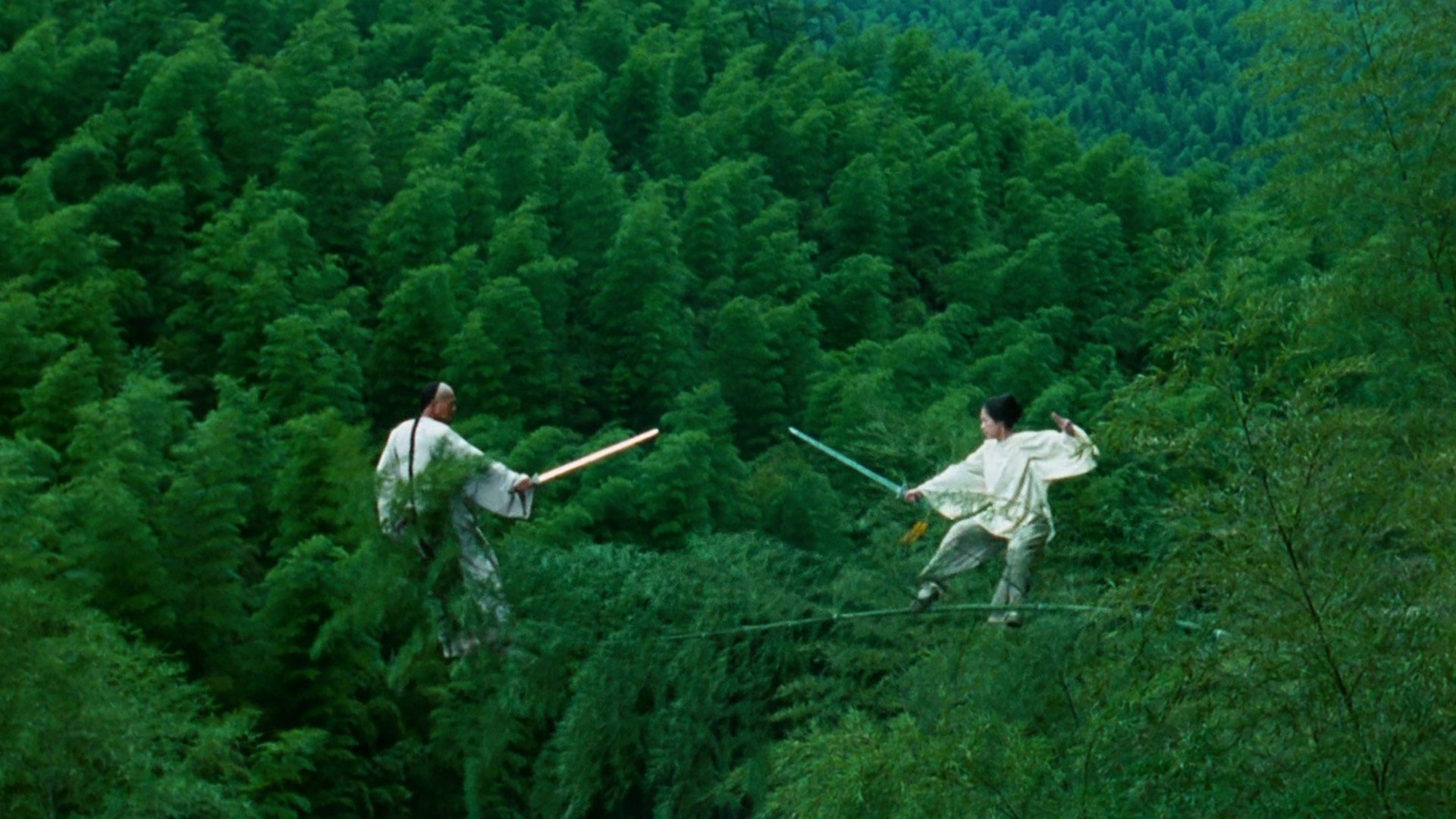
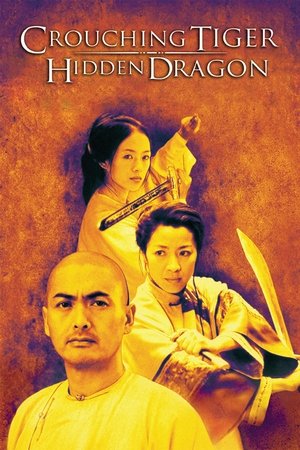
Crouching Tiger, Hidden Dragon
A timeless story of strength, secrets and two warriors who would never surrender.
2000 • 2h 0min • ★ 7.439/10 • Hong Kong
Directed by: Ang Lee
Cast: Chow Yun-Fat, Michelle Yeoh, Zhang Ziyi, Chang Chen, Lung Sihung
Two warriors in pursuit of a stolen sword and a notorious fugitive are led to an impetuous, physically-skilled, teenage nobleman's daughter, who is at a crossroads in her life.
“Crouching Tiger, Hidden Dragon” is a Taiwanese-Chinese martial arts film released in 2000, directed by Ang Lee. The film gained international acclaim and became a cultural phenomenon, bringing Chinese wuxia cinema to a global audience.
Set in ancient China during the Qing dynasty, the story follows the intertwined destinies of several characters, including the legendary warrior Li Mu Bai (played by Chow Yun-fat).
The skilled female warrior Yu Shu Lien (played by Michelle Yeoh), the rebellious Jen Yu (played by Zhang Ziyi), and the bandit Lo (played by Chang Chen).
The film explores their personal journeys, conflicts, and relationships, while showcasing breathtaking martial arts sequences.
“Crouching Tiger, Hidden Dragon” combines elements of romance, adventure, and fantasy with intricate fight choreography and gravity-defying martial arts techniques.
The film is known for its poetic storytelling, elegant visuals, and its exploration of themes such as love, duty, and the pursuit of personal freedom.
Ang Lee’s direction in the film is characterized by his masterful handling of the action sequences, as well as his ability to bring emotional depth to the characters.
The film’s cinematography, by Peter Pau, captures the beauty of the Chinese landscapes and enhances the graceful movements of the martial arts.
The film received critical acclaim and achieved worldwide success. It won numerous awards, including four Academy Awards, and became the highest-grossing foreign language film in the United States at the time.
“Crouching Tiger, Hidden Dragon” is often praised for its artistic merit, cultural significance, and its contribution to the popularization of martial arts cinema on a global scale.
The film’s impact extends beyond its commercial success, as it elevated the status of Asian cinema and opened doors for more diverse and internationally recognized films. It remains a beloved and influential work in both the martial arts genre and world cinema as a whole.
- English (Subtitle)
15. Roma (2018)
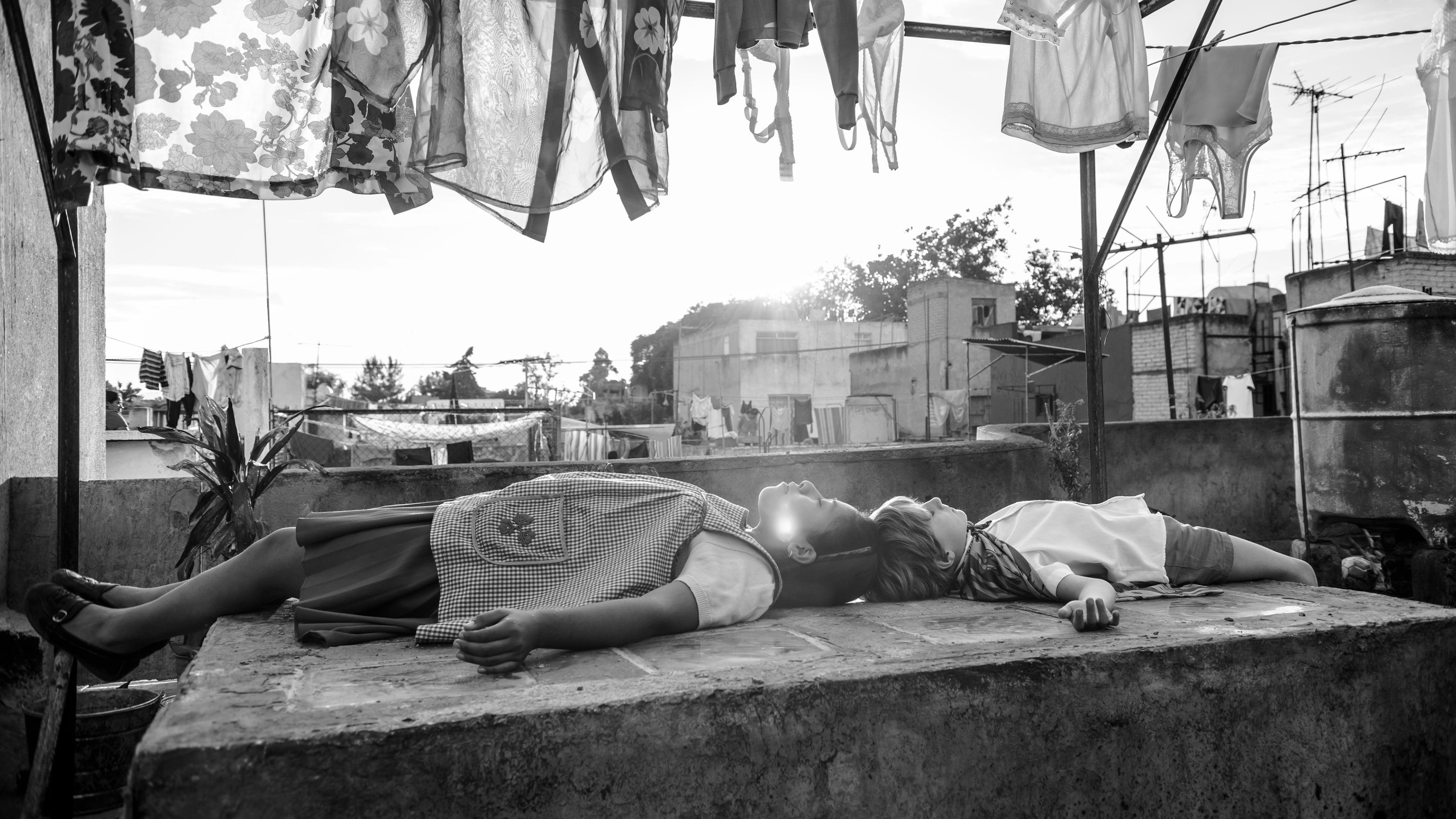
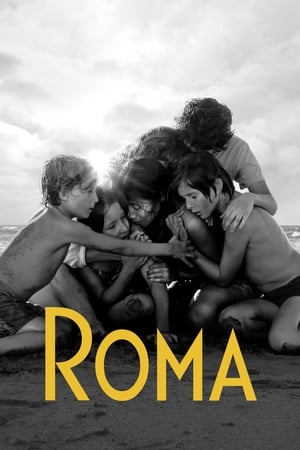
Roma
There are periods in history that scar societies and moments in life that transform us as individuals.
2018 • 2h 15min • ★ 7.6/10 • United Kingdom
Directed by: Alfonso Cuarón
Cast: Yalitza Aparicio, Marina de Tavira, Diego Cortina Autrey, Carlos Peralta, Marco Graf
In 1970s Mexico City, two domestic workers help a mother of four while her husband is away for an extended period of time.
“Roma” is a 2018 Mexican drama film written and directed by Alfonso Cuarón. The film is a semi-autobiographical work that pays homage to Cuarón’s upbringing in Mexico City during the 1970s.
Set against the backdrop of socio-political turmoil and personal struggles, “Roma” follows the life of Cleo (played by Yalitza Aparicio), a young domestic worker for a middle-class family.
The film explores Cleo’s experiences and the interconnected lives of the people around her, including the family she works for and her fellow domestic workers.
“Roma” is characterized by its meticulous attention to detail and its stunning black-and-white cinematography, which captures the beauty of everyday moments amidst the backdrop of a rapidly changing city.
The film’s visual style, combined with its deliberate pacing and immersive sound design, creates an intimate and immersive viewing experience.
Cuarón’s direction in “Roma” demonstrates his skill in crafting deeply human stories. The film delves into themes of class, race, family, and personal identity, offering a poignant reflection on the complexities of life and the power of resilience.
“Roma” received widespread critical acclaim and garnered numerous accolades, including three Academy Awards, including Best Director and Best Cinematography. It was also the first Mexican film to win the Golden Lion at the Venice Film Festival.
The film’s success can be attributed to its ability to evoke powerful emotions and its authentic portrayal of characters and their relationships.
Through its personal and compassionate storytelling, “Roma” offers a glimpse into the lives of ordinary people and reminds us of the shared humanity that connects us all.
“Roma” stands as a testament to the power of cinema to capture the beauty and struggles of everyday life. It is a deeply moving and visually stunning work that continues to resonate with audiences around the world.
- Yalitza Aparicio (Actor)
- English (Subtitle)
16. Doctor Zhivago (1965)
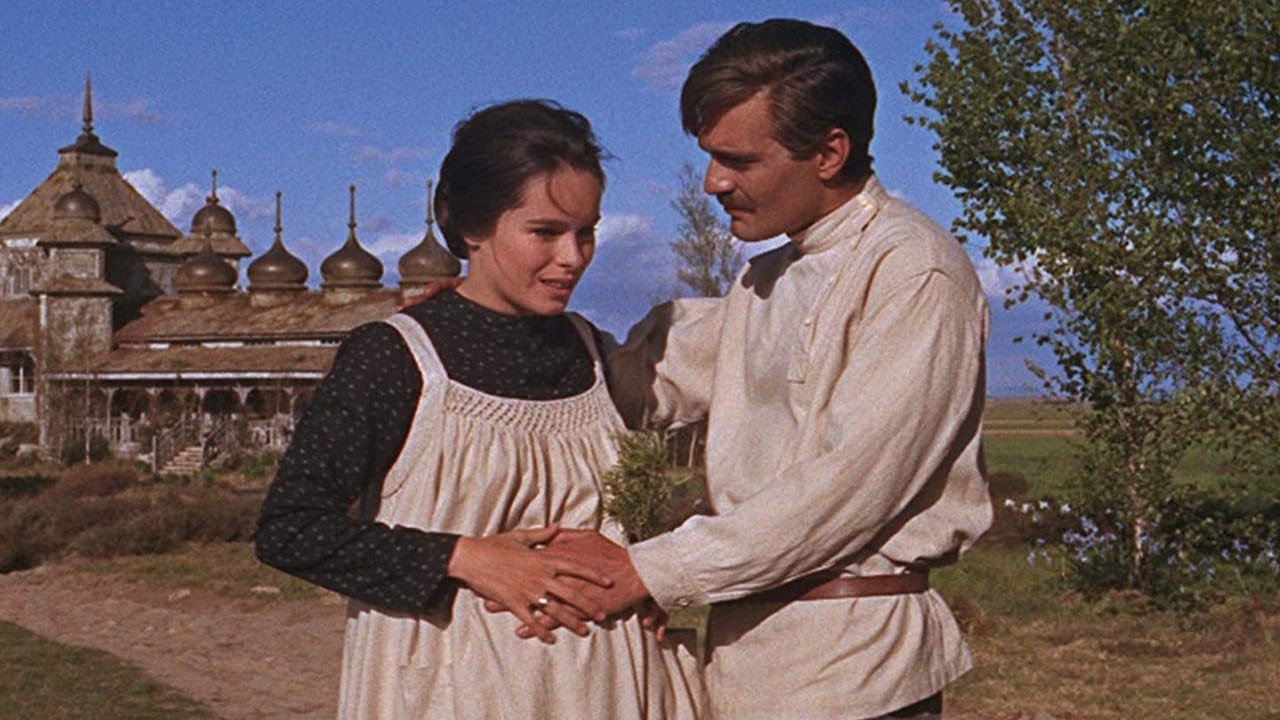

Doctor Zhivago
Turbulent were the times and fiery was the love story of Zhivago, his wife and the passionate, tender Lara.
1965 • 3h 20min • ★ 7.544/10 • Italy
Directed by: David Lean
Cast: Omar Sharif, Julie Christie, Geraldine Chaplin, Rod Steiger, Alec Guinness
The life of a Russian physician and poet who, although married to another, falls in love with a political activist's wife and experiences hardship during World War I and then the October Revolution.
“Doctor Zhivago” is a 1965 epic romantic drama film directed by David Lean.
Based on the novel of the same name by Boris Pasternak, the film depicts the tumultuous events of the Russian Revolution and the personal story of a physician and poet named Yuri Zhivago (played by Omar Sharif).
The film follows Zhivago’s journey as he navigates through the turbulent times of World War I, the Russian Revolution, and the subsequent Russian Civil War.
Set against the backdrop of these historical events, Zhivago’s life becomes intertwined with the lives of Lara (played by Julie Christie), his beloved mistress, and Tonya (played by Geraldine Chaplin), his wife.
“Doctor Zhivago” explores themes of love, betrayal, idealism, and the human spirit’s resilience in the face of political and social upheaval.
The film captures the epic scale of the Russian Revolution and the subsequent social transformation, juxtaposed with the intimate and personal struggles of its characters.
Known for its breathtaking cinematography, sweeping landscapes, and iconic musical score by Maurice Jarre, “Doctor Zhivago” received critical acclaim and became a commercial success.
It won five Academy Awards, including Best Original Score, Best Art Direction, and Best Cinematography.
Please note that “Doctor Zhivago” is widely available on various streaming platforms and in DVD and Blu-ray formats. It is considered a classic of cinema and a poignant portrayal of love and loss in the midst of historical events.
- Amazon Prime Video (Video on Demand)
- Geraldine Chaplin, Julie Christie, Tom Courtenay (Actors)
- David Lean (Director) - Robert Bolt (Writer) - Carlo Ponti (Producer)
- English (Playback Language)
- English (Subtitle)
17. Butch Cassidy and the Sundance Kid (1969)
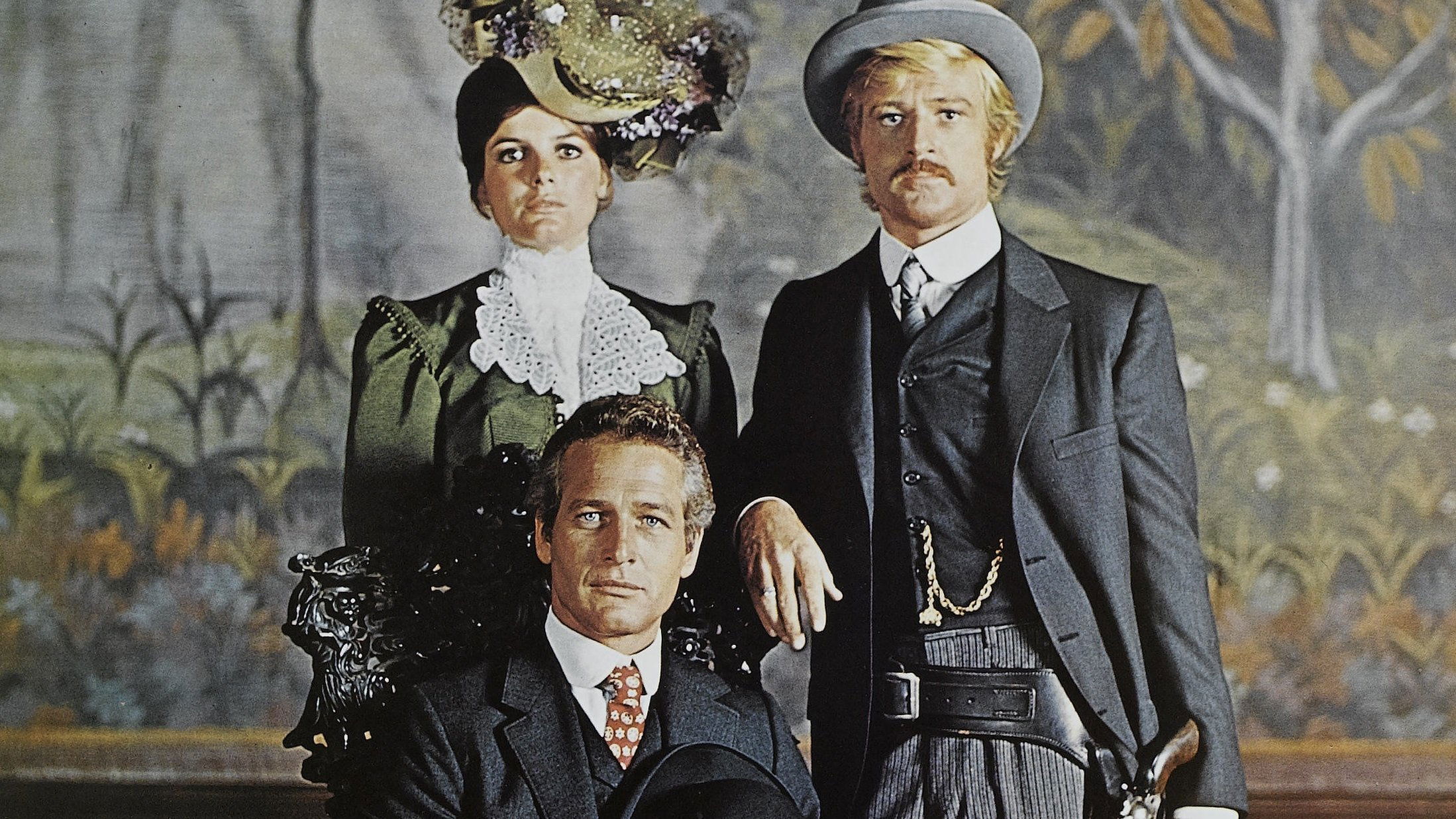
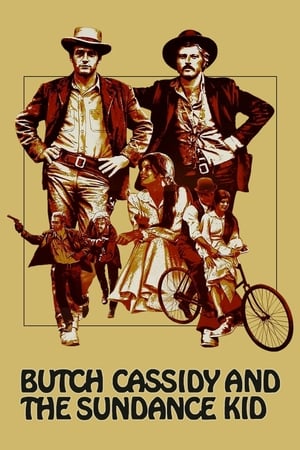
Butch Cassidy and the Sundance Kid
Not that it matters, but most of it is true.
1969 • 1h 51min • ★ 7.604/10 • United States of America
Directed by: George Roy Hill
Cast: Paul Newman, Robert Redford, Katharine Ross, Strother Martin, Henry Jones
As the west rapidly becomes civilized, a pair of outlaws in 1890s Wyoming find themselves pursued by a posse and decide to flee to South America in hopes of evading the law.
“Butch Cassidy and the Sundance Kid” is a 1969 Western film directed by George Roy Hill.
The film is loosely based on the true story of the American outlaws Butch Cassidy (played by Paul Newman) and the Sundance Kid (played by Robert Redford) and their notorious exploits during the late 19th century.
The film follows Butch Cassidy, the leader of the “Hole in the Wall” gang, and his loyal companion, the Sundance Kid.
Together, they embark on a series of bank and train robberies, evading law enforcement and becoming legendary figures in the process. However, as the law closes in on them, they decide to escape to Bolivia along with Sundance’s lover, Etta Place (played by Katharine Ross).
“Butch Cassidy and the Sundance Kid” blends elements of action, adventure, comedy, and drama. It showcases the charismatic performances of Paul Newman and Robert Redford and their on-screen chemistry, which has become iconic in cinematic history.

The film is known for its memorable dialogue, well-choreographed action sequences, and its portrayal of the complex friendship between Butch Cassidy and the Sundance Kid. It also features a highly regarded musical score composed by Burt Bacharach.
“Butch Cassidy and the Sundance Kid” received critical acclaim upon its release and became a commercial success. It won four Academy Awards, including Best Original Screenplay. The film’s popularity endures, and it is considered one of the greatest Western films of all time.
The film’s blend of humor, action, and compelling characters, along with its exploration of loyalty and the changing American West, has made it a beloved classic among audiences and a significant contribution to the Western genre.
- Amazon Prime Video (Video on Demand)
- Paul Newman, Robert Redford, Katharine Ross (Actors)
- George Roy Hill (Director) - William Goldman (Writer) - John Foreman (Producer)
- English (Playback Language)
- English (Subtitle)
18. Barry Lyndon (1975)
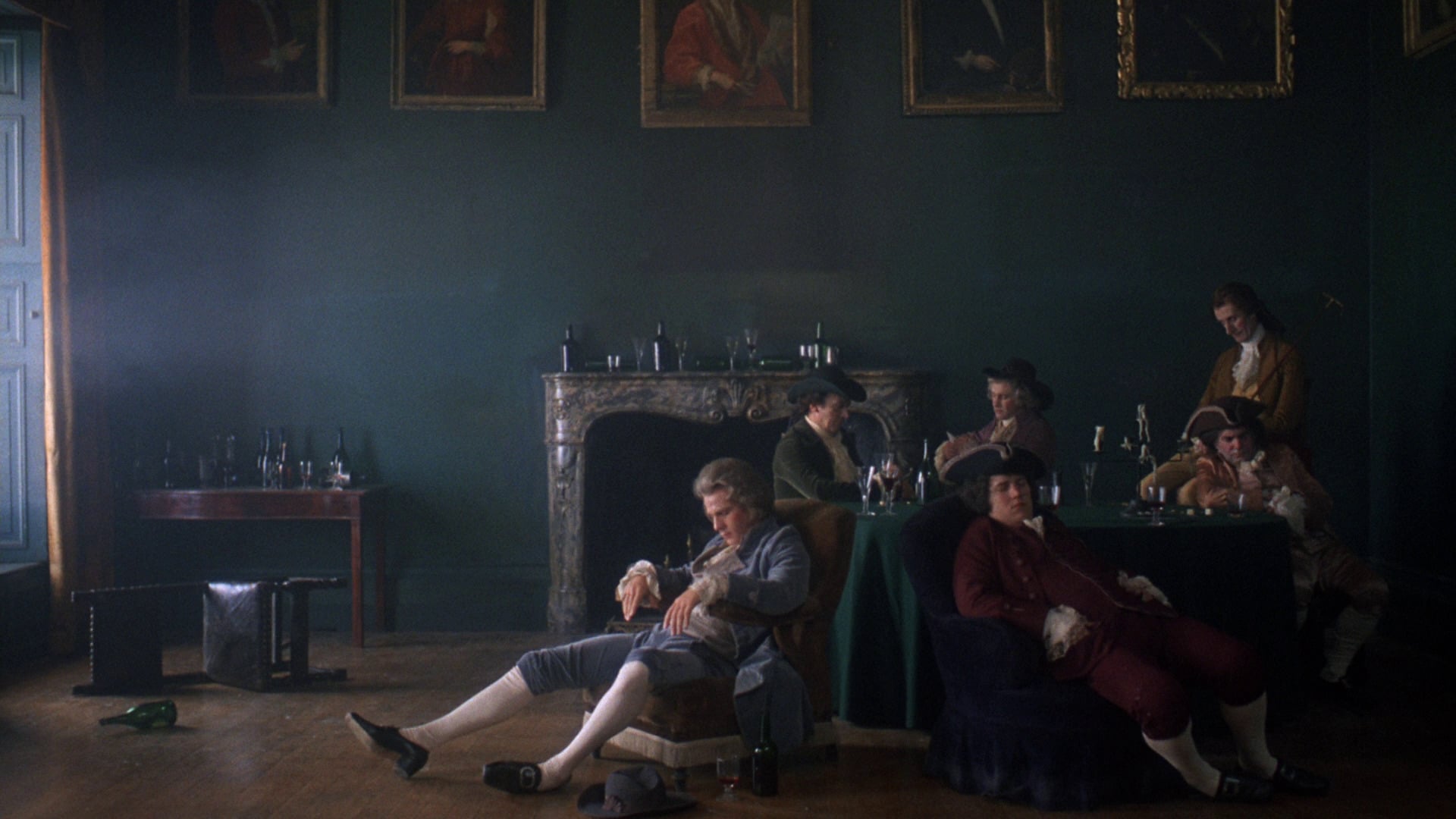
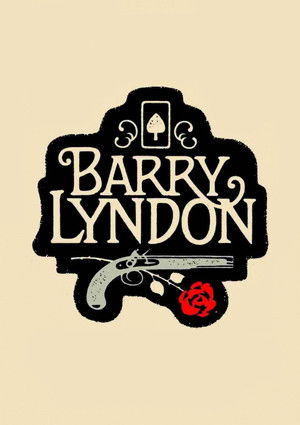
Barry Lyndon
1975 • 3h 5min • ★ 8.005/10 • United Kingdom
Directed by: Stanley Kubrick
Cast: Ryan O'Neal, Marisa Berenson, Patrick Magee, Hardy Krüger, Steven Berkoff
An Irish rogue uses his cunning and wit to work his way up the social classes of 18th century England, transforming himself from the humble Redmond Barry into the noble Barry Lyndon.
“Barry Lyndon” is a 1975 historical drama film directed by Stanley Kubrick.
The film is based on the 1844 novel “The Luck of Barry Lyndon” by William Makepeace Thackeray and tells the story of Redmond Barry (played by Ryan O’Neal), an Irish adventurer who rises through the ranks of European society in the 18th century.
Set during the era of the Seven Years’ War and the Enlightenment, the film follows Barry’s journey from a humble upbringing in rural Ireland to his involvement in various escapades and his pursuit of wealth and social status.
He becomes entangled in love affairs, engages in duels, and manipulates situations to his advantage as he strives to climb the social ladder.
“Barry Lyndon” is known for its meticulous attention to period detail and its stunning cinematography.
The film is notable for its use of natural lighting and a unique lens developed specifically for the production, resulting in painterly and visually striking compositions reminiscent of classical art.
Stanley Kubrick’s direction and his meticulous approach to filmmaking shine through in “Barry Lyndon.” The film showcases his trademark precision, deliberate pacing, and attention to visual storytelling.
The narrative unfolds with a sense of detachment, allowing the audience to observe the characters and events from a distance.
The film explores themes of ambition, class dynamics, and the pursuit of power. It presents a complex portrait of its protagonist, who is both an opportunist and a victim of circumstances.
Through the character of Barry Lyndon, the film delves into the inherent flaws of the human condition and the consequences of unchecked ambition.
“Barry Lyndon” received critical acclaim upon its release and was nominated for seven Academy Awards, winning four in the technical categories. It is revered for its technical achievements, its sumptuous production design, and its faithful recreation of the 18th-century European world.
Over time, “Barry Lyndon” has gained a reputation as one of Stanley Kubrick’s masterpieces and has been recognized as a visually stunning and thematically rich exploration of human nature and society.
It continues to be celebrated for its artistic achievements and its contribution to cinematic storytelling.
- Amazon Prime Video (Video on Demand)
- Ryan O'Neal, Marisa Berenson, Patrick Magee (Actors)
- Stanley Kubrick (Director) - Stanley Kubrick (Writer) - Stanley Kubrick (Producer)
- Audience Rating: PG (Parental Guidance Suggested)
19. Blade Runner 2049 (2017)
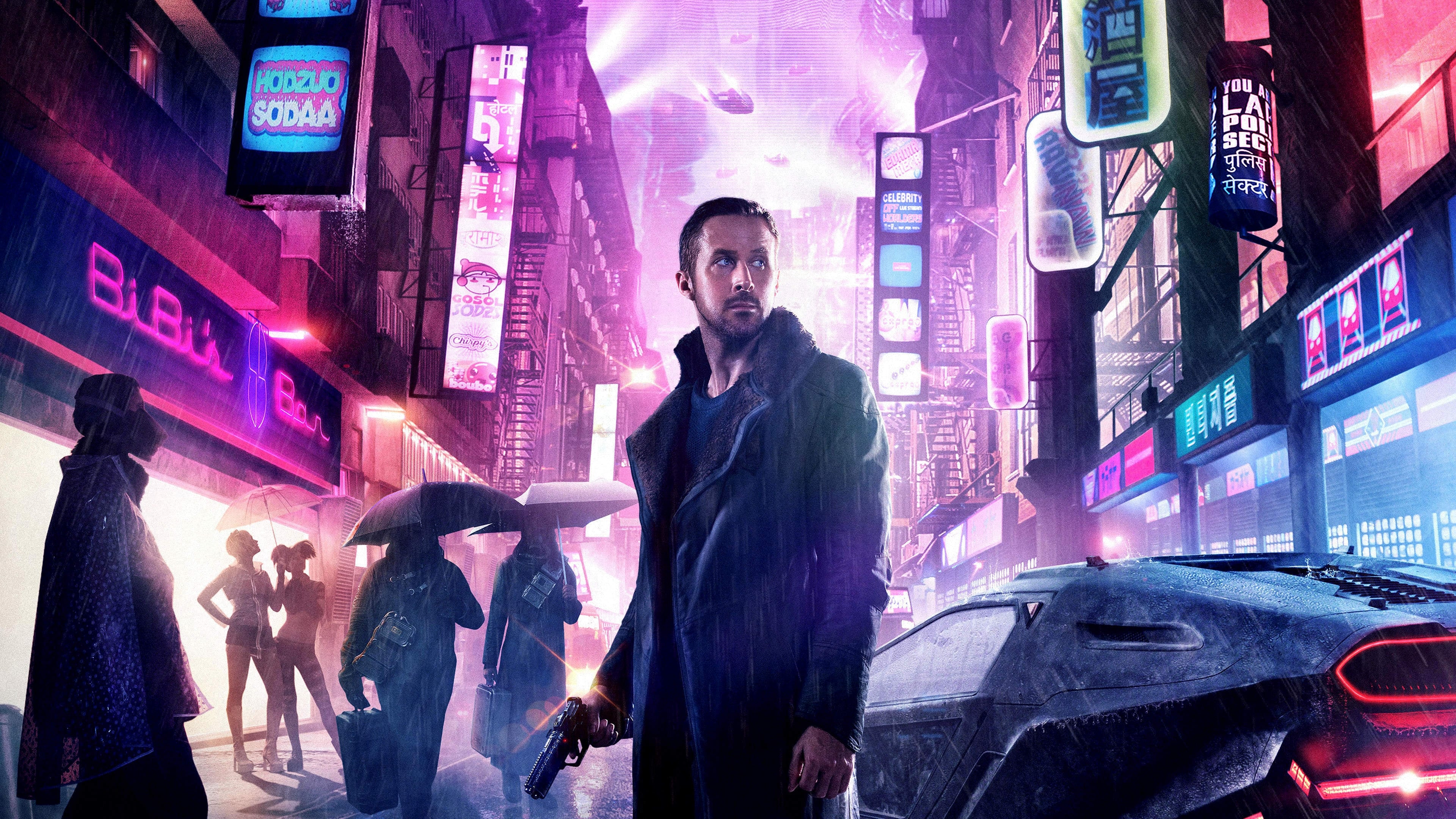
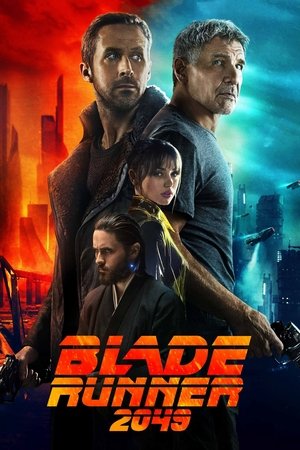
Blade Runner 2049
The key to the future is finally unearthed.
2017 • 2h 44min • ★ 7.6/10 • Canada
Directed by: Denis Villeneuve
Cast: Ryan Gosling, Harrison Ford, Ana de Armas, Dave Bautista, Robin Wright
Thirty years after the events of the first film, a new blade runner, LAPD Officer K, unearths a long-buried secret that has the potential to plunge what's left of society into chaos. K's discovery leads him on a quest to find Rick Deckard, a former LAPD blade runner who has been missing for 30 years.
“Blade Runner 2049” is a 2017 American neo-noir science fiction film directed by Denis Villeneuve. It is a sequel to the 1982 cult classic “Blade Runner” and is set 30 years after the events of the original film.
The story takes place in a dystopian future Los Angeles in the year 2049. The film follows K, a new blade runner played by Ryan Gosling, who uncovers a long-buried secret that has the potential to plunge society into chaos.
His discovery leads him on a quest to find Rick Deckard, the former blade runner played by Harrison Ford, who has been missing for decades.
“Blade Runner 2049” explores themes of identity, memory, and the nature of humanity, delving into philosophical questions about what it means to be human. The film is known for its stunning visual effects, atmospheric cinematography, and thought-provoking narrative.
Directed with precision and artistry by Denis Villeneuve, the film pays homage to the original while expanding its world and themes.
It received critical acclaim for its performances, cinematography, score, and its ability to capture the essence of the original film’s atmosphere and themes.
“Blade Runner 2049” was a box office success and won several awards, including two Academy Awards for Best Cinematography and Best Visual Effects. It has become a significant entry in the science fiction genre and is regarded as one of the best sequels ever made.
The film offers a visually stunning and thematically rich cinematic experience, continuing the exploration of the dystopian world and existential questions that made the original “Blade Runner” so influential.
It stands as a worthy successor to its predecessor, providing a captivating and thought-provoking journey for both fans of the original film and newcomers to the franchise.
- Polish Release, cover may contain Polish text/markings. The disk has English audio.
- Norwegian, Ukrainian, Thai, Malay, Finnish (Subtitles)
20. The Third Man (1949)
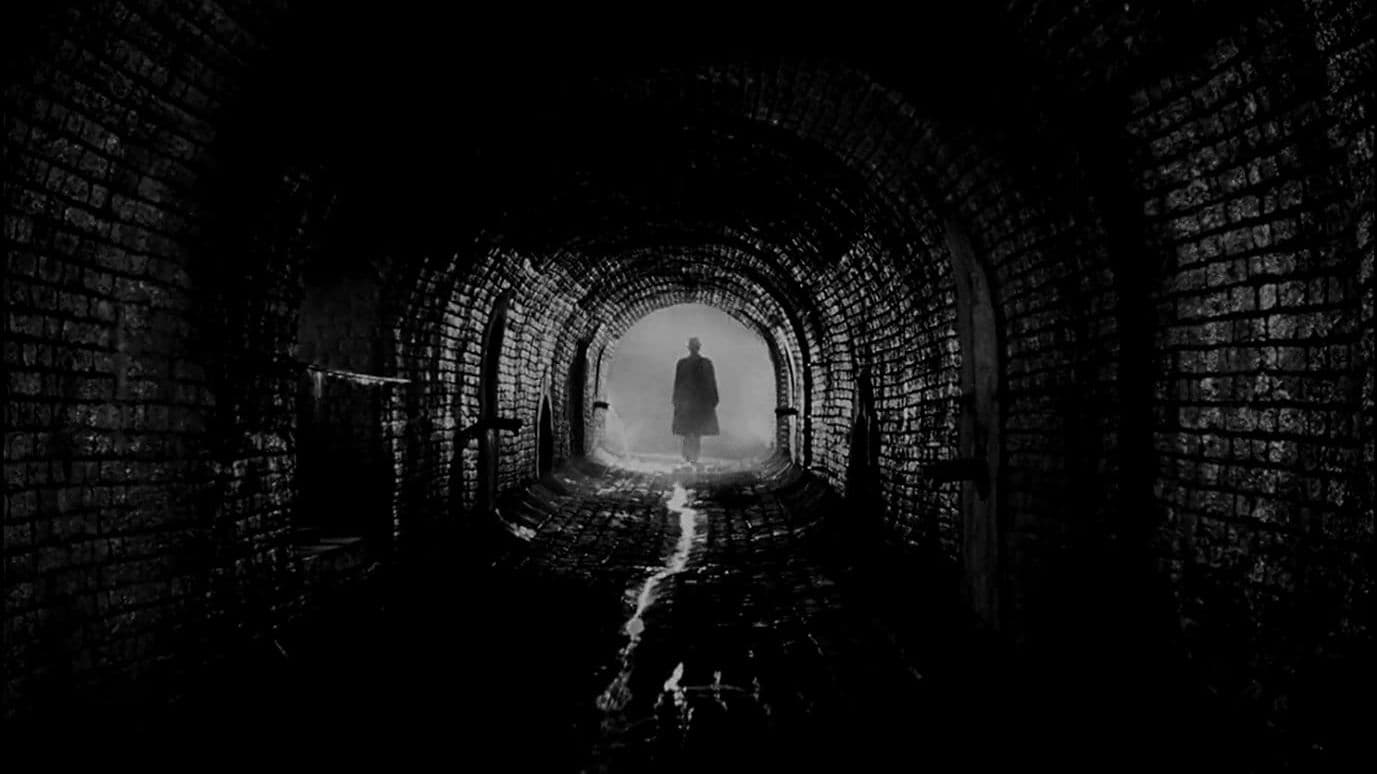
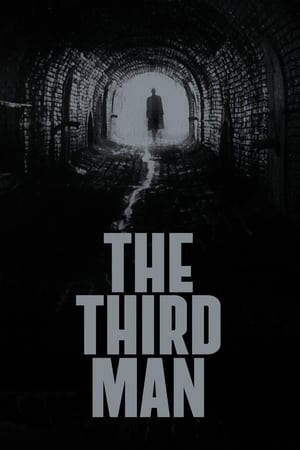
The Third Man
Hunted by men ... Sought by WOMEN!
1949 • 1h 45min • ★ 7.919/10 • United Kingdom
Directed by: Carol Reed
Cast: Joseph Cotten, Alida Valli, Trevor Howard, Orson Welles, Paul Hörbiger
In postwar Vienna, Austria, Holly Martins, a writer of pulp Westerns, arrives penniless as a guest of his childhood chum Harry Lime, only to learn he has died. Martins develops a conspiracy theory after learning of a "third man" present at the time of Harry's death, running into interference from British officer Major Calloway, and falling head-over-heels for Harry's grief-stricken lover, Anna.
“The Third Man” is a classic 1949 British film noir directed by Carol Reed. The screenplay was written by Graham Greene and the film features a stellar cast, including Orson Welles, Joseph Cotten, and Trevor Howard.
Set in post-World War II Vienna, “The Third Man” tells the story of a writer named Holly Martins (played by Joseph Cotten) who arrives in the city and becomes embroiled in the mystery surrounding the death of his friend Harry Lime (played by Orson Welles).
As Martins investigates Lime’s death, he discovers a complex web of deception, betrayal, and intrigue.
The film is renowned for its atmospheric cinematography, iconic zither score by Anton Karas, and memorable performances.
Orson Welles delivers a captivating portrayal of the enigmatic Harry Lime, and the film’s distinctive visual style, including the use of Dutch angles, contributes to its noir sensibilities.
“The Third Man” is celebrated for its compelling narrative, its exploration of moral ambiguity and the consequences of choices, and its examination of the post-war atmosphere and political tensions in Vienna.
It is considered one of the greatest films of all time and has had a lasting impact on cinema.
Please note that my knowledge is based on information available up until September 2021, and there may have been subsequent developments or details related to “The Third Man” that I’m unaware of.
- Amazon Prime Video (Video on Demand)
- Joseph Cotten, Alida Valli, Orson Welles (Actors)
- Carol Reed (Director) - Graham Greene (Writer) - Carol Reed (Producer)
- English (Playback Language)
- English (Subtitle)










![Fanny and Alexander (Theatrical & Television Version) (The Criterion Collecton) [DVD]](https://m.media-amazon.com/images/I/41-OSQO12ZL.jpg)



![Crouching Tiger, Hidden Dragon [DVD] [2000]](https://m.media-amazon.com/images/I/61GXoWaAA4L.jpg)
![Roma (2018) [Criterion Collection] UK Only [DVD] [2019]](https://m.media-amazon.com/images/I/31M-E9Z7uAL.jpg)



![Blade Runner 2049 [Blu-ray 3D] [2017] [Region Free]](https://m.media-amazon.com/images/I/61DoJZAiuvL.jpg)

